bonus culture
description: a corporate culture in which bonuses are expected, possibly to the detriment of basic salary or long-term stability
45 results
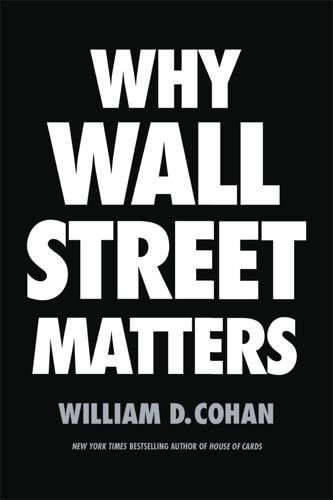
Why Wall Street Matters
by
William D. Cohan
Published 27 Feb 2017
We need to return Wall Street to its days of prudent risk taking, where the leaders of the firms are held personally accountable for their bad behavior or foolish risk taking. That accountability, which used to be a given in the days when Wall Street was a series of undercapitalized private partnerships, has been totally lost in the modern era, when Wall Street has been transformed into behemoth public companies chock-full of other people’s money and when a bonus culture has replaced the partnership culture. It’s been said the three most dangerous words in the English language are “other people’s money.” We need to restore that accountability, and fast. If a banker or trader creates and sells a squirrelly financial product or makes a terrible and risky bet knowing full well when he or she did it that it was likely to go wrong, then there is little question, if convicted, that the expensive art should be sold off the walls in his or her home and that the home itself should be sold and the proceeds given to the victims.
…
If DLJ were successful, if the public’s capital could be substituted for partners’ capital, if the public’s legal liability for mistakes could be substituted for the partners’ legal liability for mistakes, there would be no telling what the consequences would be both for Wall Street and for everybody who relied on Wall Street to raise capital, to provide liquidity in the buying and selling of stocks and bonds, and to help individuals manage and grow their wealth. Although it was unlikely the founders of DLJ could have anticipated all of what its IPO would unleash over the next nearly fifty years, they must have had some inkling that by substituting a bonus culture—where bankers, traders, and executives demand to be paid for the revenue they generated in their various product lines—for the long-standing partnership culture—where the individual partners of the firm collaborated to make sure only prudent risks were taken in order to ensure there would be annual pretax profits for them to divide—Wall Street would never be the same.
…
Someone who still has $600 million in cash lying around is unlikely to be nearly as upset as someone who had nothing remaining of a $1.6 billion fortune. It’s like the difference between a chicken and a pig in a ham and egg breakfast: The chicken is interested; the pig is committed. The leaders of Wall Street’s banks need to be totally committed to their firms, not just merely interested. We need to eliminate the bonus culture on Wall Street and return to a compensation system that more closely resembles that of the partnership culture from the years before DLJ filed its IPO in 1969. It wouldn’t be hard to do, either. It just requires the leadership of a Wall Street firm to want to make the change. Unfortunately, gutsy leadership is in short supply on Wall Street these days.
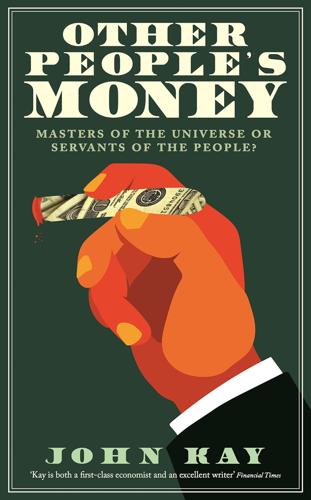
Other People's Money: Masters of the Universe or Servants of the People?
by
John Kay
Published 2 Sep 2015
The award by a French court of €4.9 billion against ‘rogue trader’ Jérôme Kerviel – compensation for the losses his inept trading had supposedly inflicted on BNP Paribas – had symbolic significance only. The bonus culture spread throughout financial conglomerates. Even very junior employees in retail banks found themselves chasing aggressive targets to earn bonuses – which would in due course give rise to well-founded claims that products such as mortgages and payment protection insurance had been mis-sold. The bonus culture, and a much-increased level of expectations about pay, spilled over into the rest of the corporate sector. Senior executives of large businesses – often, like Sandy Weill, themselves engaged in deal-making in the new market for corporate control – observed the levels of remuneration being earned in the financial sector, and raised their sights.
…
The option allowed beneficiaries to participate in the upside but did not require them to share in the downside, a structure that encouraged the risky transformational change that proved so destructive of ICI, GEC and Citibank: the link to share prices – Weill’s ‘nearby computer monitor displaying Citigroup’s changing share price’ – created an intensely short-term focus. What useful business information could a chief executive glean from minute-by-minute fluctuations in the value of the company he ran? The bonus culture in both financial and non-financial sectors, far from aligning the interests of managers and traders with those of shareholders, produced an outcome in which the objectives of managers and traders were materially different from those of the organisations for which they worked. This agency problem – companies being run for the benefit of a group of senior employees – was most acute in the financial sector but also infected the corporate sector more widely.
…
But the arrival of corporation men such as Welch among the super-rich is a new phenomenon. The ability of the senior employees of large corporations to appropriate significant fractions of corporate revenues for their own purposes mirrors, perhaps, the lavish lifestyle opportunities once exploited by prelates and courtiers. And so the combination of the bonus culture in the financial sector and its associated activities, a new generation of robber baron and the multimillionaire CEO has produced a reversal of the egalitarian trends of most of the twentieth century. ‘We are the 99 per cent’ was the slogan of the ‘Occupy’ protesters, drawing attention to the degree to which a small minority have benefited disproportionately during the era of financialisation.
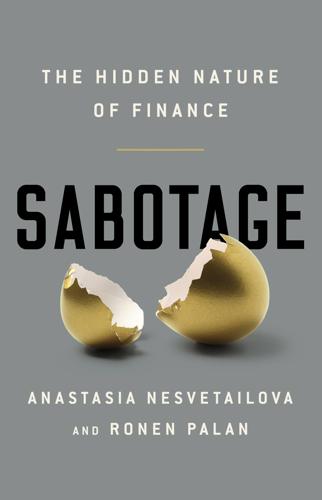
Sabotage: The Financial System's Nasty Business
by
Anastasia Nesvetailova
and
Ronen Palan
Published 28 Jan 2020
Bankers ensure that profits are flowing to them, but if left unpunished will also ensure that their mistakes are paid for by others. Actually, why confine yourselves to profit flows? What if you can get handsomely paid for losses, too? Let’s consider a very interesting report by Andrew Cuomo, attorney general of New York, published in 2009. The report, subtitled ‘Heads I Win, Tails You Lose Bank Bonus Culture’, provides a detailed analysis of the size of bonuses paid out by big US banks during the 2007–9 meltdown. It notes, for instance, that large payouts became a cultural expectation at banks and a source of competition among the firms. For example, as Merrill Lynch’s performance plummeted, the bank severed the tie between pay based on performance and set its bonus pool based on what it expected its competitors would do… Merrill paid out close to $16bn in 2007 while losing more than $7bn and paid close to $15bn in 2008 while facing near collapse.
…
Crotty, J., ‘If Financial Market Competition Is So Intense, Why Are Financial Firm Profits So High? Reflections on the Current “Golden Age” of Finance’, University of Massachusetts, Amherst, PERI Working Paper Series, No. 134, April 2007. Cuomo, A., ‘No Rhyme or Reason. The Heads I Win, Tails You Lose Bank Bonus Culture’, workplacebullying.org/multi/pdf/Cuomo.pdf, 2009. Darrah, K., ‘The QE reversal’, World Finance, 26 April 2018, www.worldfinance.com/banking/the-qe-reversal. Davíðsdóttir, S., ‘What is Deutsche Bank hiding in Iceland?’, Sigrún Davíðsdóttir’s Icelog, undated, http://uti.is/?s=deutsche. Davidson, A., ‘How AIG fell apart’, Reuters, 18 September 2008, www.reuters.com/article/us-how-aig-fell-apart-idUSMAR85972720080918.
…
Wolf, ‘Banking remains far too undercapitalised for comfort’, Financial Times, 21 September 2017, www.ft.com/content/9dd43a1a-9d49-11e7-8cd4-932067fbf946. 23. L. Noonan and P. Jenkins, ‘JPMorgan: defying attempts to end “too big to fail”’, Financial Times, 12 September 2018, www.ft.com/content/0eebc7de-b4de-11e8-b3ef-799c8613f4a1. 24. A. Cuomo, ‘No Rhyme or Reason: The Heads I Win, Tails You Lose Bank Bonus Culture’, 2009, p. 2. 25. Ibid., p. 5. 26. I. Kottasowa, ‘9 trillion and counting: how central banks are still flooding the world with money’, CNN Business, 9 September 2016, https://money.cnn.com/2016/09/08/news/economy/central-banks-printed-nine-trillion/index.html. 27. K. Darrah, ‘The QE reversal’, World Finance, 26 April 2018, www.worldfinance.com/banking/the-qe-reversal. 28.

Swimming With Sharks: My Journey into the World of the Bankers
by
Joris Luyendijk
Published 14 Sep 2015
The following year I added 40 per cent over what I thought reasonable and that’s how it played out. By cutting bonuses senior management proves to headquarters they have the bank’s interest at heart – while probably leaving more for the top. Headquarters must be seen by shareholders to be doing the same.’ The bonus culture is a ritual on many levels. ‘The pre-positioning starts in September to October. People fly their kite, signalling to their boss: “Look how well I have done over the past year”; “Remember the account that went so well, I was on board.” When a big deal is announced, people try to get their names mentioned.
…
The restaurant business in London must love bankers. Some guys would come in on Mondays with the bills from the weekend. Dropping £1,000 on a night out was not surprising.’ Kilian Wawoe was a senior human resources officer in the asset management division of ABN Amro in the Netherlands and Monaco before writing a very critical book about the bonus culture and moving into academia. He had flown business class a lot and this had a peculiar effect on him. ‘Over there, a line of sweaty people and you walk past all that, with your platinum card. Have you noticed that people in business class are far more likely to look at passengers making their way to economy?
…
What’s more, he said, ‘There just wasn’t any time for self-reflection. I ended up drinking huge amounts. Alcohol is a quick mood changer; it stops you from thinking and dulls you down. Not that I was aware of that at the time.’ I remained quiet, waiting for him to break the silence. This isn’t just due to the bonus culture, he said in a tone that suggested he had thought about this a lot. ‘This is about tribal bonding, about belonging and sticking with your mates. Your sense of worth begins to be formed by what you do. It is often the first question people ask you, right? What do you do? In that time, when I answered that question, I was a superstar.’
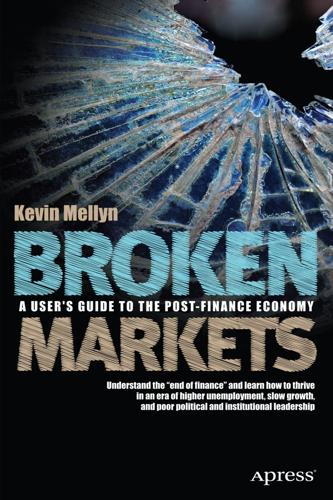
Broken Markets: A User's Guide to the Post-Finance Economy
by
Kevin Mellyn
Published 18 Jun 2012
After the 2008 crisis, the Center for the Study 147 148 Chapter 7 | Reconstructing Finance of Financial Innovation in London published a very entertaining online book called Grumpy Old Bankers, in which bankers of an earlier era representing many countries opined on how the current generation “lost the plot” and disgraced the profession. Short-term share-price manipulation through leverage and asset securitization is high among their complaints. The Bonus Trap The first bank to openly abandon the “bonus culture” of compensation based upon meeting share-price targets will gain enormous moral capital and legitimacy. Even if initially recognized dimly by the general public, its peers, customers, and shareholders will take notice. As personally greedy as individuals at the top of such institutions may or may not be, the current model of compensation is a nightmare for all large banks.
…
Old-line Wall Street partnerships, such as Goldman Sachs before it went public in 1999, were essentially the same, as were professional services firms such as McKinsey and “white shoe” law firms. Broken Markets Download from Wow! eBook <www.wowebook.com> Would the “talent” stand for abandoning the bonus culture and stock-based compensation? Even absent the looming threat of government pay policies in the United Kingdom and elsewhere, there is wide recognition that the current model cannot be sustained. The brutal fact of the matter is that good-quality professional management training—from formal settings such as MBA schools to apprenticeships in analyst programs at consulting firms and investment banks—has never been as widely available as it is today.
…
w 163 I Index A C Anglo-Saxon capitalism, 84 Card Act, 68, 70 Anglo-Saxon-type banking systems, 156 CHIPS.See Clearing House Interbank Payment System Asset securitization, 66 Association of Community Organizers for Reform Now (ACORN), 65 Austerity definition, 98 Euro, real unification, 99 Germany, 99–101 B BankAmericard, 29 Bankcard association/card scheme, 29 Bank-centric system, 110 Bank for International Settlements (BIS), 108 Basel III process, 50–51 Basel process, 27–28 Basel standards, 61 Bipartisan government policy, 72 Boom optimistic entrepreneurs, 77 Bretton Woods system, 26, 111 Bureaucracies, 21 Civilization, 64 Clearing House Interbank Payment System (CHIPS), 106, 107 Committee of Payment and Settlement Systems (CPSS), 108 Community Reinvestment Act (CRA), 65–66 Consumer banking BankAmericard, 29 bankcard association/card scheme, 29 branch-based customer relationship, 29 credit card industry, 30 Depression-era Glass-Steagall Act, 33 “diseconomies of scale”, 35 FDIC, 34 four-party model, 29 institutional investors, 34 “market-centric” financial system, 33 merchant/customer relationship, 29 Pac-Man banking, 34 risky business, 31–33 RTC, 31 SEC, 33 S&L industry, 28, 30 1 166 Index Consumer banking (continued) statistical analysis, 30 US “flow-of-funds” data, 28 usury laws, 30 Consumer Finance Protection Bureau (CFPB), 68 Continuous Linked Settlement (CLS), 108 Creative destruction, 85 Credit-driven economy, 76–77 Crony capitalism, 85 Cross-Pacific economy, 97 D Debtor Nation, 64 Dirigisme, 83 Dollar-centric financial system, 112 Durbin Amendment, 70 E ECB.See European Central Bank Economic consequences, financial regulation, 55 bank P & Ls and balance sheets bureaucratic regulation, 59 capital allocation, 57 capitalism, 57 clearinghouse/transaction switch, 58 contradictory rules, 59 creative destruction, 63 free-market capitalism, 57 full-blown panic leading, 57 lender-of-last-resort function, 58 payments system, 58–59 private-sector banks, 58 consumer protection vs. access, 67–68 financial access restriction brick-and-mortar branches, 66 civilization, 64 clearinghouse, 63 CRA, 65–66 credit judgments, 65 economic enfranchisement, 64 government paternalism, 65 joint-stock banks, 63 loan securitization, 66 mass-market retail banking, 66 national and multilateral development agencies, 65 non-credit worthy segments, 66 ownership society, 66 paychecks, 64 premium/reward cards, 66 individual banker accountability, 55 interest reduction, 56 predatory lending, 56 product differentiation, 68–69 public utility, 55, 56 regulatory, capital, and litigation costs, 56 regulatory compliance and fraud losses, 56 savers and investors, 71–73 shell game asset-securitization process, 61 commercial and industrial loans, 62 credible assessment, 62 Dodd-Frank Act, 63 Federal Reserve Bank, 63 free-market creative destruction, 63 globalization, 62–63 Great Depression, 61 Great Moderation, 61 least-regulated jurisdictions, 61 regulatory arbitrage, 61 relationship banking, 62 retail banking revolution, 63 return-on-equity business, 62 rules-based regulation, 61 securitization and market-based funding, 63 supervision vs. rule making, 59–60 unbanking, 70–71 utility-style banking, 56 European Central Bank (ECB), 6, 99, 102–103 F Federal Deposit Insurance Corporation (FDIC), 34 Index Federal Reserve, 101 Finance consumers, 117 American Revolutionary War song, 118 bondholders and money market funds, 138 Bureau of Labor Statistics, 126 business-to-business commerce, 119 consumerism, 118 credit score, 120–121 debt free, 138–139 “dot-com” bubble, 1264 employment and consumer credit, 121–122 Gallup polling organization, 127 Great Society, 126 house prices, 133 “infrastructure”, 119 innovation and education, America advantage, 129 American living standards, 129 global success, 128 high-stakes examinations, 130 industrial policy, 128 student loans, 131 mass-market pottery, 119 money saving, 136–137 New Class, new elite educated caste, 132–133 non-tradable private sector, 127 one’s station in life, 118 overseas trade, 119 pent-up demand, 119 private-sector employment, 125 property taxes, 127 “self-liquidating”, definition, 119 shelter asset bubbles and distorts markets, 133 electoral process, 134 Japanese economy, 135–136 retirement plans and financial advisors, 134 Travellers Club, 133 wealth effect, 133 short-term insurance scheme, unemployment assistance, 127 stock market, 137–138 structural unemployment American economy, 123–125 labor force participation rate, 123 labor markets, Europe, 122 solidarity, 123 three-tiered system, 122 subsidy-based industries, 125 super-safe government debt, 125 technological creativity and economic progress, 117 unionized public-service employees, 125 US job growth, 126 “welfare to work” requirements, 126 You, Inc., 139 Finance-driven economy, 1, 72 anti-capitalism, 2 capitalism, 1 chronic debt crisis, 22 corporate America, 20 current movie artificial bank earnings, 7 asset prices, 6 banking implosions, 6 borrowers and investors connection, 10 borrowing demand, 7 catastrophic financial bubble, 10 civilization, 10 corporatism, 9 democratic crony capitalism, 9 Dodd-Frank act, 8 economic growth and social stability, 10 financial repression, 9 Glass-Steagall Act, 8 human ingenuity, 10 interbank funding markets, 6 low interest rates and easy money, 6 market collapse, 10 money market, 6 overexuberence, 6 overinvestment and speculation, 6 pre-crisis conditions, 8 printing money, 7 private capital, 7 167 168 Index Finance-driven economy (continued) profitability, 7 quantitative easing, 8 recovery, 8 regulation, 8 regulatory capital rules, 8 resources and tools, 9 shell-shocked enterprises and households, 8 end of employment, 21–22 financial leverage magic and poison CEO class, 14–15 consumer debt, 15–16 disconnection problem, 11–12 market bargain, 10 real economy, 10 wealth financialization, 13–14 working capital, 11 global financial crisis, 2 Great Moderation, 16–18 Great Panic, 18–19 household sector agony, 19–20 investor class, 22 Marx, Karl asset bubble, 5 cash nexus, 4 dot-com bubble, 5 economic revolution, 3 First World War, 4 free markets, 3 French Revolution, 3 globalization, 3 Great Depression, 5 liberalism, 3 normalcy, 4 overproduction and speculation, 3 Wall Street, 4, 5 revolutionary socialism, 2 sovereign debt, 8, 22 Finance reconstruction, 142 bank bashing, 146 “bankers”, 142 business model, challenges, 145 Citigroup, 145 cyclical businesses, 143 government management, 142 legitimacy bonus culture, 148–150 privileged opportunity, longestablished bank, 146 short-term share-price manipulation, 148 state and legal systems, 147 stock price, 147 mark-to-market price, 144 “producers”, 143 profession, definition, 163 prudence, 145, 161–163 root-and-branch transformation, 145 talent pool, 144 “the race for talent”, 143 trust cash management, 160 Financial Market Meltdown, 159 FSA, 159 hackneyed term, 159 information asymmetry, 159 non-bank financial service provider, 161 oversold/up-sold products, 159 utility Anglo-Saxon-type banking systems, 156 big data tools, 158 bills-of-exchange market, 150 branch and payment services, 157 clearinghouse creation, 158 core banking, 154 economic value transmission, 150 exchange of claims, 151 fee-income growth, 155 fiat money system, 151 financial intermediation, 150 financial transactions, 157 flexible contractor/subcontractor relationship, 158 information technology, 156 “liquidity premium”, 152 multidivisional/M-form organization, 153 non-interest income, 155 old-media companies, 157 Index overhead value analysis, 154 “privileged opportunity”, 152 quill pen–era practice, 158 sheer utility value, 155 silos, product business, 153 transaction accounts, 152 venture capital industry, 142 “War for Talent”, 143 Financial crises, 23 affordable housing, 24 banking “transmission” mechanism, 43 Basel III process, 50–51 basel process, 27–28 consumer banking(see Consumer banking) Dodd-Frank, 49–50 domestic banking system, 38 European Union, 51–53 FDIC, 40 finance-driven economy’s leverage machine, 43 Financial Market Meltdown, 25 GDP, 38 Government Policy and Central Banks, market meltdown(see Regulation process) government policy failure, 45 “government-sponsored” public companies, 24 Great Depression, 44 GSEs, 24 legal missteps, 47–48 New Deal, 43 panic-stricken markets, 40 political missteps, 45–47 Ponzi scheme, 42 postwar financial order, 25–27 printing money, 38 private profits and socialized losses, 40 private-sector demand, 43 public-sector demand, 42 quantitative approach, 25 TARP, 39 too-big-to-fail institutions, 41 Triple A bonds, 41 US Federal Reserve System, 38 Financial liberalization, 89 Financial Market Meltdown, 25, 61, 89, 109, 159 Financial repression, 9, 78, 111 Financial Services Authority (FSA), 60, 159 Food and Drug Administration (FDA), 69 Fordism, 68 Free-market capitalism, 89 Free markets, 3 French Revolution, 3 Front-end trading systems, 107 FSA.See Financial Services Authority G GDP, 11 “Giro” payments systems, 151 Global imbalance, 96 Globalization, 3 Global whirlwinds, 93 Asia, finance movement cultural differences, 110–111 Financial Market Meltdown, 109 Interest Equalization Tax, 109 language, law, and business culture, 109 primacy, 109 austerity(see Austerity) British Empire, 30 Chimerica, 97 China and United States cross-Pacific economy, 97 foreign interference and aggression, 98 headline growth rates, 97 repression revolution and series, 97–98 Second World War, 98 Smoot-Hawley Tariff, 98 surpluse trade, 97 sustainable development, 98 Chinese ascendancy, 113 clearing and settlement bottleneck, 106–107 Dynastic China, 112 169 Download from Wow!
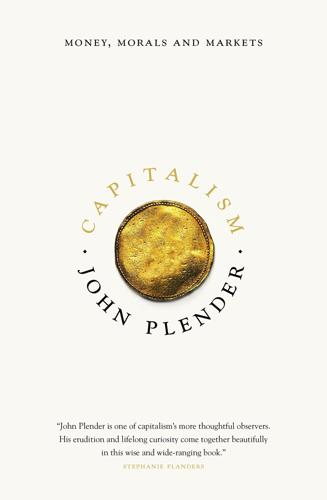
Capitalism: Money, Morals and Markets
by
John Plender
Published 27 Jul 2015
Continuing revelations of unethical and criminal behaviour since the financial crisis suggest that the stock of moral capital has fallen to a much lower level than has prevailed in recent decades. The facts that so many big institutions were the subject of morally hazardous bailouts and so few people have gone to jail in the wake of the crisis, along with the persistence of the bonus culture in banking and in the wider corporate sector, mean that the improvement in commercial morality that Galbraith expected to take place in downturns did not happen to the extent it should have during the Great Recession. Despite the protestations of bankers that they are embracing an ethical approach to running the business, little appears to have changed.
…
The banker Carl Fürstenberg, who ran the Berliner Handels-Gesellschaft in the late nineteenth and early twentieth centuries, famously remarked: ‘Shareholders are stupid and impertinent – stupid because they give their money to somebody else without any effective control over what this person is doing with it, and impertinent because they ask for a dividend as a reward for their stupidity.’217 Fürstenburg’s first point is relevant to the wider corporate sector today because there is another sense in which quoted companies in the Anglosphere have become dysfunctional. The bonus culture that has come to dominate top pay over the past ten to fifteen years was supposed to help align the interests of management with those of shareholders. Instead, it has introduced systematically distorted incentives into the corporate world. Rewards increasingly take the form of shares or share options and are performance related.
…
Wilson) 1, 2 Alberti, Leon Battista 1 Alessandri, Piergiorgio 1 Allen, Maurice 1 Ambassadors, The (Henry James) 1 Americans for Tax Reform 1 Anatomy of Change-Alley (Daniel Defoe) 1 Angell, Norman 1 Anglosphere 1, 2 Arab Spring 1 Aramaic 1 arbitrage 1 Argentina 1 Aristotle 1, 2, 3, 4, 5, 6, 7, 8, 9 art 1 Asian Tiger economies 1 Atlas Shrugged (Ayn Rand) 1 Austen, Jane 1 Austrian school 1 aviation 1 Babbitt (Sinclair Lewis) 1 Bair, Sheila 1 Balloon Dog (Orange) (sculpture) 1 Balzac 1 Bank for International Settlements 1, 2, 3, 4, 5, 6 Bank of England 1, 2, 3, 4, 5 bank runs 1 bankers 1, 2 bankruptcy laws 1, 2 Banks, Joseph 1 Banksy 1 Barbon, Nicholas 1, 2, 3 Bardi family 1 Barings 1 Baruch, Bernard 1, 2 base metal, transmutation into gold 1 Basel regulatory regime 1, 2, 3 Baudelaire, Charles 1 Baum, Frank 1 behavioural finance 1 Belgium 1, 2 Bell, Alexander Graham 1 Benjamin, Walter 1 Bernanke, Ben 1, 2, 3 Bi Sheng 1 Bible 1 bimetallism 1 Bismarck, Otto von 1 Black Monday (1987) 1 black swans 1 Blake William 1, 2, 3 Bloch, Marcel 1 Bloomsbury group 1, 2 Boccaccio 1 bond market 1 bonus culture 1 Bootle, Roger 1 Boston Tea Party 1 Boswell, James 1 Boulton, Matthew 1 Bowra, Maurice 1 Brandeis, Louis 1 Bretton Woods conference 1 British Land (property company) 1 British Rail pension fund 1 Brookhart, Smith 1, 2 Brunner, Karl 1 Bryan, William Jennings 1 Bubble Act (Britain 1720) 1 bubbles 1, 2, 3 Buchanan, James 1 Buffett, Warren 1, 2, 3 Buiter, Willem 1 Burdett, Francis 1 van Buren, Martin 1 Burke, Edmund 1, 2 Burns, Robert 1 Bush, George W. 1, 2 Butler, Samuel 1 Candide (Voltaire) 1 Carlyle, Thomas 1, 2, 3 Carnegie, Andrew 1 Carville, James 1 cash nexus 1 Cash Nexus, The (Niall Ferguson) 1 Cassel, Ernest 1, 2 Catholic Church 1, 2, 3 Cecchetti, Stephen 1 Centre for the Study of Capital Market Dysfunctionality, (London School of Economics) 1 central bankers 1 Cervantes 1 Chamberlain, Joseph 1 Chancellor, Edward 1 Chapter 11 bankruptcy 1 Charles I of England 1, 2 Charles II of England 1 Chaucer 1 Cheney, Dick 1 Chernow, Ron 1 Chicago school 1, 2 Child & Co. 1 China 1, 2 American dependence on 1, 2 industrialisation 1, 2, 3 manufacturing 1 paper currency 1 Christianity 1, 2, 3, 4, 5 Churchill, Winston 1 Cicero 1, 2 Citizens United case 1 Cleveland, Grover 1 Clyde, Lord (British judge) 1 Cobden, Richard 1, 2, 3, 4 Coggan, Philip 1 Cohen, Steven 1 Colbert, Jean-Baptiste 1, 2 Cold War 1 Columbus, Christopher 1 commodity futures 1 Companies Act (Britain 1862) 1 Condition of the Working Class in England (Engels) 1 Confucianism 1, 2, 3 conquistadores 1 Constitution of Liberty, The (Friedrich Hayek) 1 Coolidge, Calvin 1, 2, 3 Cooper, Robert 1 copyright 1 Cort, Cornelis 1 Cosimo the Elder 1 crash of 1907 1 crash of 1929 1, 2, 3, 4, 5, 6, 7, 8, 9, 10, 11 creative destruction 1, 2 credit crunch (2007) 1, 2, 3 cum privilegio 1 Cyprus 1, 2 Dale, Richard 1, 2 Dante 1 Darwin, Erasmus 1 Das Kapital (Karl Marx) 1 Dassault, Marcel 1 Daunton, Martin 1 Davenant, Charles 1, 2, 3 Davies, Howard 1 debt 1 debt slavery 1 Decameron (Boccaccio) 1 Defoe, Daniel 1, 2, 3, 4, 5, 6, 7, 8 Dell, Michael 1 Deng Xiaoping 1, 2 derivatives 1 Deserted Village, The (Oliver Goldsmith) 1, 2, 3 Devil Take the Hindmost (Edward Chancellor) 1 Dickens, Charles 1, 2, 3, 4, 5, 6, 7, 8, 9 portentously named companies 1 Die Juden und das Wirtschaftsleben (Werner Sombart) 1 A Discourse of Trade (Nicholas Barbon) 1 Ding Gang 1 direct taxes 1, 2 Discorsi (Machiavelli) 1 diversification 1 Dodd–Frank Act (US 2010) 1, 2, 3 ‘dog and frisbee’ speech 1 dot.com bubble 1, 2, 3, 4 Drayton, Harley 1 Dumas, Charles 1, 2 Dürer, Albrecht 1 Duret, Théodore 1, 2 Dutch East India Company 1 Duttweiler, Gottlieb 1 Dye, Tony 1 East of Eden (film version) 1 Economic Consequences of the Peace (Keynes) 1, 2 Edison, Thomas 1, 2 efficient market hypothesis 1 electricity 1 Eliot, T.
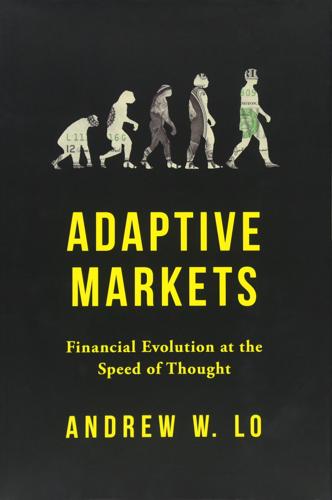
Adaptive Markets: Financial Evolution at the Speed of Thought
by
Andrew W. Lo
Published 3 Apr 2017
This is exactly how Wall Street bonus culture is intended to work. However, Murphy’s conclusion comes with an important caveat. His results only apply to the top level of banking executives—they don’t translate to other employees. Lower-level employees with lower levels of wealth also had much less to lose from risk-taking. The financial penalties that matter to a high net worth individual may not matter to someone with little wealth or stake in a company. Did low-level employees of financial firms take excessive risks in pursuit of potential profit? As we’ve seen with rogue traders, the Wall Street bonus culture isn’t sufficient to prevent low-level employees from taking excessive risk; other forms of monitoring and risk management are needed.
…
Here is a possible counternarrative, but one that will require further evidence to verify or refute. Despite its inaccuracy, this narrative about Wall Street’s bonus culture is difficult to dislodge from people’s minds, precisely because it conforms to people’s heuristic about how the world works. We’re prone to confirmation bias. If we believe that Wall Street wheeler-dealers are all crooks, this narrative about Wall Street’s bonus culture not only confirms this heuristic, but also reinforces it. More subtly, if we believe that “people respond to incentives”—the economist’s heuristic—we’ll be satisfied with an explanation that confirms this heuristic without ever bothering to dig deeper into the details to check whether our heuristic has been applied correctly.
…
Some narratives are mistaken, incorrect, or deliberately untrue. Where facts can be verified or refuted, we should do so expeditiously and relentlessly. Here are two examples of popular narratives that may not be as accurate as they sound. NOT ENOUGH SKIN IN THE GAME? One popular narrative of the financial crisis blames the “bonus culture” of Wall Street for creating a climate of excessive risk-taking. Much of the public was outraged that executives in the financial industry received generous bonuses after the world came to the brink of financial ruin. Why was the U.S. government bailing out the banks, if the money was immediately going into the wallets of the people whose risky decision making caused the crisis?
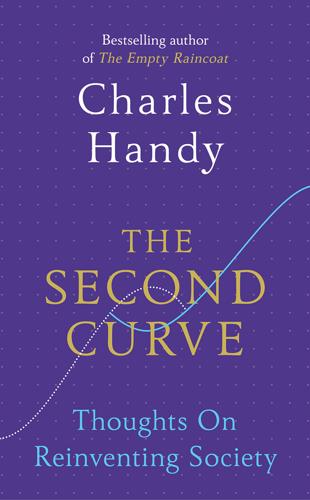
The Second Curve: Thoughts on Reinventing Society
by
Charles Handy
Published 12 Mar 2015
The difference is that the new wealth is owned and earned, not by the landowners of old, but by the ‘working rich’, mainly the top executives of corporate firms, along with a few bankers and the occasional sports star, who together make up just .01 per cent of the population. Piketty calls this situation ‘meritocratic extremism’. That is a polite term for excessive greed. I have never seen the sense of the bonus culture. To me it seems demeaning to have to be bribed to do your best in your job. When I worked in one of the corporate elephants it was assumed that your salary was the appropriate rate for your work and you were expected to do it to the best of your ability. Success was eventually rewarded by promotion and, with it, an increased salary.
…
As I have argued in Essay 7 it was the new, and mistaken, priority given to shareholder value in the 1970s that made money the main point of business, leading to the share options and bonuses which distorted the priorities of the managers, and to the harmful emphasis on the short term. The replacement of the bonus culture by profit-sharing, and share-option schemes by wider share ownership, would turn things around. Money would be the prize but not the point. There is a difference. Ask any prize-winner, be they Nobel or gold medallist. Nevertheless, as it is, the recipients of the high pay awards see these as the fruits of enterprise, well deserved and just.
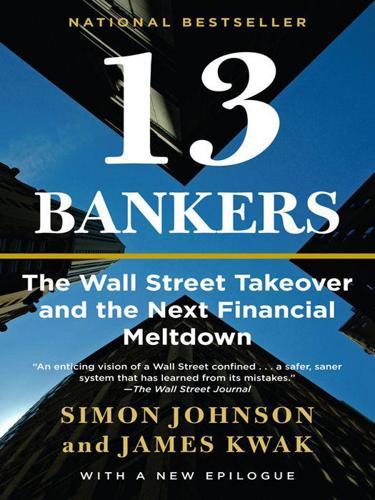
13 Bankers: The Wall Street Takeover and the Next Financial Meltdown
by
Simon Johnson
and
James Kwak
Published 29 Mar 2010
The excess relative wage—the difference between average finance wages and what one would predict based on educational differences—reaches a peak of around 40 percentage points in the 2000s. See Figure 11 in ibid. 78. Andrew Cuomo, “No Rhyme or Reason: The ‘Heads I Win, Tails You Lose’ Bank Bonus Culture,” July 2009, available at “Cuomo Report Details Wall St. Bonuses,” DealBook Blog, The New York Times, available at http://dealbook.blogs.nytimes.com/2009/07/30/cuomo-report-blasts-wall-street-bonus-culture/. 79. Claudia Goldin and Lawrence F. Katz, “Transitions: Career and Family Life Cycles of the Educational Elite,” American Economic Review: Papers and Proceedings 98 (2008): 363–69. 80. Steve Lohr, “Wall St.
…
In the first half of 2009, Goldman Sachs set aside $11.4 billion for employee compensation—an annual rate of over $750,000 per employee and near the record levels of the boom. Even if the government’s strategy was to let the banks earn their way out of their problems, that strategy was being undermined by a bonus culture that diverted the excess profits to employees rather than to capital reserves. High risk and huge payouts—nothing changed, except a strengthened government guarantee. Defending the huge bonuses in St. Paul’s Cathedral in London in October 2009, Goldman Sachs executive Brian Griffiths went Gordon Gekko one better by invoking Jesus: “The injunction of Jesus to love others as ourselves is a recognition of self-interest.… We have to tolerate the inequality as a way to achieving greater prosperity and opportunity for all.”72 Goldman CEO Lloyd Blankfein even claimed to be “doing God’s work” (because banks raise money for companies who employ people and make things).73 The rest of us were not so lucky.
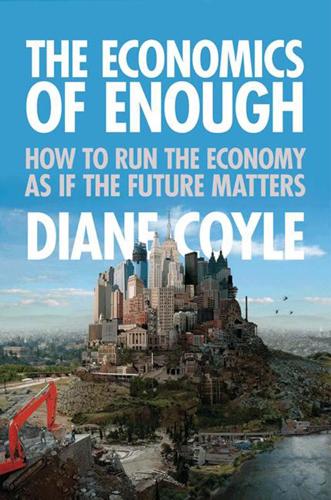
The Economics of Enough: How to Run the Economy as if the Future Matters
by
Diane Coyle
Published 21 Feb 2011
It spread to the public sector too, partly as a genuine response forced by competition for able people in the job market but partly just because of the example set by banks and other companies that were being feted by politicians and the media. It has been corrosive. Bankers have even started to act as though, despite their enormous bailouts from taxpayers, they can get straight back to the high salary and high bonus culture. They seem to have an extraordinary psychological blind spot about the moral outrage their excessive incomes have caused. But their Gilded Age is over. Whether it will be a calm or a turbulent end is yet to be seen. FIVE Trust On wednesday 10 september 2008, Lehman Brothers was worth about $5 billion on the New York Stock Exchange.
…
The bonuses far in excess of salaries, and the spending on big houses, fast cars, and designer clothes they funded, did create a climate of greed. People in other professions who are in reality in the top 1 percent or even 0.1 percent of the income distribution were made to feel poor by the bankers.4 Banking bonus culture validated making a lot of money as a life and career goal. It made executives working in other jobs, including not only big corporations but the public sector too, believe that they deserved bonuses. Remuneration consultants, a small parasitic group providing a fig leaf justification for high salaries, helped ratchet up the pay and bonus levels throughout the economy.
…
Courtesy of Shutterstock. 259 INDEX Addams, Jane, 131 AEG Live, 197 Affluent Society, The (Galbraith), 190, 230–31 aging population: baby boom generation and, 4, 106, 109; demographic implosion and, 95–100; measurement and, 206; policy recommendations for, 267, 280, 287, 296; posterity and, 89–90, 94–95, 105–6, 109, 112–13; retirement age and, 94, 97–99, 106–7, 112 Alesina, Alberto, 128, 135–36, 171 All Consuming: How Shopping Got Us into This Mess and How We Can Find Our Way Out (Lawson), 26 altruism, 48, 118–22 André, Carl, 27 anomie, 48, 51 anxiety, 1, 25, 47–48, 136–38, 149, 174 Aristotle, 50 Arrow, Kenneth, 81–82, 220, 236–37, 310n25 Arthur Anderson, 145 asymmetric information, 17; institutions and, 248, 254, 262–63; measurement and, 186; values and, 214, 219–20, 229 Australia, 12, 271; Bureau of Statistics and, 274; diversity and, 172; fairness and, 126, 130, 143; measurement and, 188, 202, 206–7; time surveys and, 206–8; trust and, 140 Austria, 239 Axelrod, Robert, 118–19 baby boom generation, 4, 106, 109 bailouts: banks and, 1, 88, 91, 99–100, 145, 267; stimulus packages and, 91, 100–3, 111 Bank of England, 1–2, 174 bankruptcy, 289; Lehman Brothers and, 1, 85, 87–88, 145, 211, 275–76; Northern Rock and, 1, 146; posterity and, 87; trust and, 145–46 banks, 2; bailouts and, 1, 88, 91, 99–100, 145, 267; Baker on, 244; bonus culture of, 87–88, 115, 139, 143–44, 193, 221, 223, 277–78, 295; capital reduction and, 256; competition and, 277; Economy of Enough and, 22, 28; fairness and, 115, 133, 139, 143–44; flaunting of wealth by, 277; Gilded Age of, 144; greed and, 277–78; higher capital requirements for, 277; immorality of, 90, 277–78; interconnected network of, 277–78; interest rates and, 281, 283; lobbyists of, 87–88, 276; measurement and, 193, 200; needed policy recommendations for, 277–78; politicians and, 87–88, 286; posterity issues and, 85–91, 94, 99–102; recovery and, 3, 103; reform and, 277–79, 283, 296; regulation of, 7; runs on, 1; state–owned, 252; structural fragility of, 6; trust and, 88–89, 145–50, 158, 161–64, 174, 176, 257; values and, 211, 213, 217, 223, 226–28, 233 “Battle for Seattle” riot, 211 Baumol, William, 189–94, 206–7 BBC, 226, 247, 288 behavioral economics, 282; fairness and, 116–17, 121; rational choice theory and, 214–15.
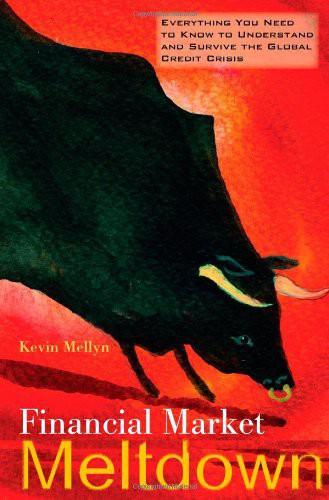
Financial Market Meltdown: Everything You Need to Know to Understand and Survive the Global Credit Crisis
by
Kevin Mellyn
Published 30 Sep 2009
The value of a broker to an investment bank is simply to make more trades happen and get clients to put more money into the firm. Brokers only survive by being ‘‘producers,’’ meaning they get clients to trade as much as possible. This is probably not a good idea for most of us, but it is how brokers hang on to their jobs and get paid a bonus. The Bonus Culture Two points now need to be underlined. Most investment bank pay is bonus, just like many sales jobs. Think of David Mamet’s Glengarry, Glen Ross or Danny DeVito in Tin Men, and you have the picture. Second, the investment banking model is by its very nature riddled with conflicts between what is good for the bank and what is good for the client.
…
See also Discount Houses bills of exchange, 32–35, 37–39, 77, 82–84, 87, 94–95, 105, 121 Bill of Exchange Act of 1882, 119 BIS (Bank for International Settlements), 108. See also Basle Committee black swans, 69 balance sheet lending, 36, 90 ‘‘bonds,’’ xi, xiv, 7, 17, 20, 25, 42–43, 49, 51–55, 64–67, 73, 78, 82, 87–88, 93, 106–107, 142, 151; coupons, 43–45; pricing, 44–46; trading, 45; vs. stocks, 48 bonus culture, 21 booms and bubbles, xx, 3, 17–18, 27, 46, 63, 67, 98, 109, 114, 126, 131, 137, 145, 149, 153, 157, 165, 175 borrowing, xix, 2, 4–5, 41, 56, 62, 66, 71, 79, 112–114, 146, 149, 151, 154, 161, 165, 169, 175 branch banking, 89 Bretton Woods, 115, 154–155 broker, 19–28, 46, 82, 87, 89–91, 96, 107, 110, 120, 130, 142, 159, 176 Building and Loan.
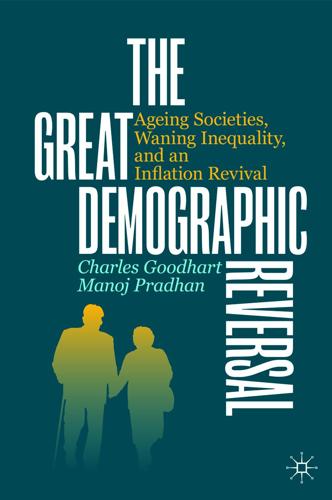
The Great Demographic Reversal: Ageing Societies, Waning Inequality, and an Inflation Revival
by
Charles Goodhart
and
Manoj Pradhan
Published 8 Aug 2020
Germany’s Population Ageing and the Current Account (Deutsche Bundesbank, No. 33/2019). Smithers, A. (2009). Wall Street Revalued: Imperfect Markets and Inept Central Bankers. Hoboken, NJ: Wiley. Smithers, A. (2013). The Road to Recovery: How and Why Economic Policy Must Change. Chichester, UK: Wiley.Crossref Smithers, A. (2019). Productivity and the Bonus Culture. Oxford: Oxford University Press. Wood, J. (2019). Retirees Will Outlive Their Savings by a Decade. World Economic Forum. Available at https://www.weforum.org/agenda/2019/06/retirees-will-outlive-their-savings-by-a-decade/. World Economic Forum. (2018). How We Can Save (for) Our Future. Available at https://www.weforum.org/whitepapers/how-we-can-save-for-our-future.
…
On Falling Neutral Real Rates, Fiscal Policy, and the Risk of Secular Stagnation (Brookings Papers on Economic Activity, BPEA Conference Drafts). Smithers, A. (2009). Wall Street Revalued: Imperfect Markets and Inept Central Bankers. Hoboken, NJ: Wiley. Smithers, A. (2013). The Road to Recovery: How and Why Economic Policy Must Change. Chichester, UK: Wiley.Crossref Smithers, A. (2019). Productivity and the Bonus Culture. Oxford: Oxford University Press. Chapter 7 Autor, D. H. (2019). Work of the Past, Work of the Future. AEA Papers and Proceedings, 109, 1–32. Boehm, C., Flaaen, A., & Pandalai-Nayar, N.(2019, May). Multinationals, Offshoring and the Decline of U.S. Manufacturing (National Bureau of Economic Research Working Paper 25824).
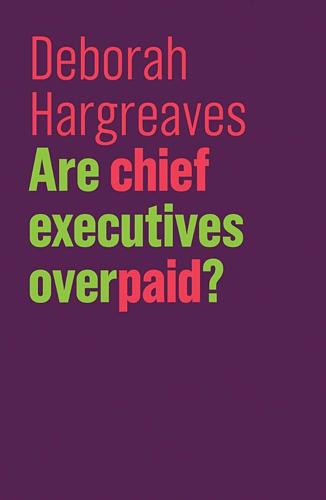
Are Chief Executives Overpaid?
by
Deborah Hargreaves
Published 29 Nov 2018
This was the conclusion of a review by lawyer Anthony Salz into wrongdoing at Barclays bank in 2013. Mr Salz said Barclays was too focused on profits and bonuses rather than the interests of customers. Instead of managing bankers, Mr Salz suggested that senior management had depended too much on the bonus culture to reward them, creating an overwhelming focus on money.5 Excessive risk-taking by bankers in pursuit of higher bonuses was also implicated in the failings of the banking system in 2008, which caused the financial crisis – the consequences of which we are still dealing with today. But not all bankers and top bosses are bonusobsessed.
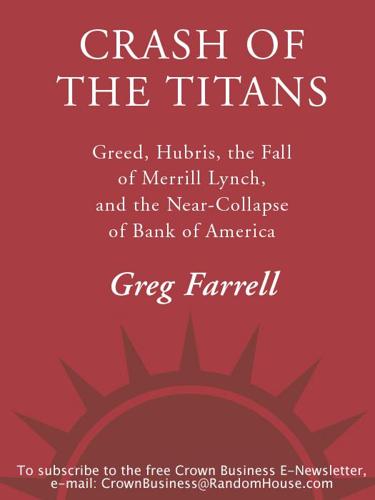
Crash of the Titans: Greed, Hubris, the Fall of Merrill Lynch, and the Near-Collapse of Bank of America
by
Greg Farrell
Published 2 Nov 2010
Alphin knew Thain well enough to understand that the incessant conversations they had about money, about compensation, had nothing to do with greed. John Thain was not a greedy person. He was a dedicated family man who put his wife and kids before everything else. Alphin came to view Thain’s focus on money as symptomatic of Wall Street’s out-of-control bonus culture. Taken in narrow terms, Thain was right to ask for a certain level of compensation. But nobody in New York seemed to understand the bigger picture. Alphin didn’t go to an Ivy League school, and he wasn’t even the top student at the school he did attend, but he understood a few things about Wall Street.
…
Bank of America could never have bought Merrill Lynch if the people up there hadn’t been so obsessed with their own bonuses that they were blind to the dangers of what they were doing. The people at Merrill Lynch came crawling to Charlotte because of their own self-inflicted wounds. The whole reason John Thain worked for Ken Lewis, and not the other way around, was that bonus culture they had up there in New York. And even Thain, with all his degrees from Harvard and MIT, couldn’t see it. That’s what twenty-five years on Wall Street would do to a man. FROM JANUARY 12 TO 14, Bank of America’s share price slipped, in heavy trading, from just under $13 a share to just over $10, amid general uncertainty over the economy and the impending shift of power in the White House from President Bush to President-elect Obama.
…
Given his lack of experience in risk management, and the strong support he enjoyed in the executive suite, it stands to reason that Semerci felt his mandate was to grow revenues as quickly as possible. In fact, not only was Semerci not a rogue trader, he was far closer to being the model employee of the recent boom era. He was a product of Wall Street’s bonus culture, which rewards employees according to how much revenue they produce for their firm. He rose quickly at Merrill Lynch because he demonstrated an uncanny ability to sell complex financial products to institutional investors and banks around the world. Up until his promotion, Semerci had been rewarded for his ability to produce, to deliver results in the near term, without regard for the long-term consequences of his actions.
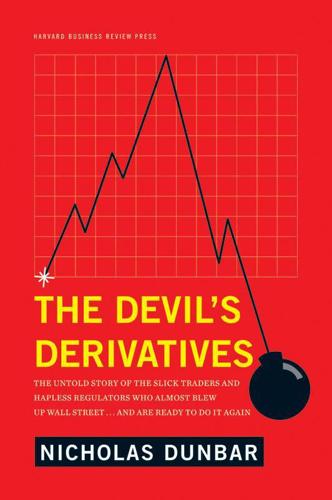
The Devil's Derivatives: The Untold Story of the Slick Traders and Hapless Regulators Who Almost Blew Up Wall Street . . . And Are Ready to Do It Again
by
Nicholas Dunbar
Published 11 Jul 2011
The upshot was that the governments of America, Britain, and other countries injected billions of equity into their biggest banks—such as RBS and Citigroup—as well as guaranteeing their debt. And yes, any investor or creditor not on the same level as the government got a free ride—all the hedges constructed by the bankers continued to function, and the bonus culture supported by the hedging continued to function. It was politically embarrassing, for example, when Merrill Lynch and Citigroup, which together lost $54 billion and received government bailouts of $55 billion, paid out bonuses of $9 billion.32 A year later, with the government guarantees still supporting the system, nearly all the banks started reporting record profits.
…
By contrast, AIG’s holding company was not an insurer. 31. Of the $57 billion in debt that Sigma had outstanding in June 2007, all but $6 billion had been paid back by October 2008. 32. See the report by New York attorney general Andrew Cuomo, No Rhyme or Reason: The “Heads I Win, Tails You Lose” Bank Bonus Culture, 2009, http://www.ag.ny.gov/media_center/2009/july/pdfs/Bonus%20Report%20Final%207.30.09.pdf. Epilogue 1. For example, see the report Global Banks—Too Big to Fail?, published by J.P. Morgan Chase in February 2010, www.jpmorgan.com. 2. See U.K. Office of Budget Responsibility prebudget report, June 2010, http://budgetresponsibility.independent.gov.uk/index.html. 3.
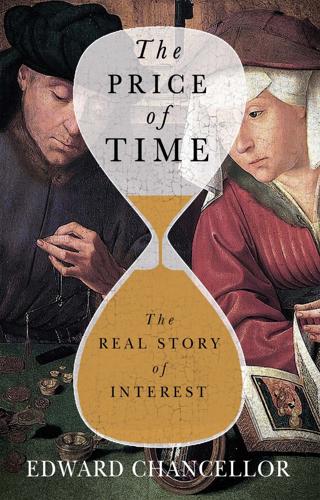
The Price of Time: The Real Story of Interest
by
Edward Chancellor
Published 15 Aug 2022
Rollinger and C. Ulf (Stuttgart, 2004). Simpson, Herbert D., ‘Real Estate Speculation and the Depression’, American Economic Review, 23 (1), March 1933. Smith, Adam, An Inquiry into The Nature and Causes of the Wealth of Nations [1776] (London, 1875). Smithers, Andrew, Productivity and the Bonus Culture (Oxford 2019). Soddy, Frederick, Wealth, Virtual Wealth and Debt (London, 1933). Somary, Felix, The Raven of Zürich: The Memoirs of Felix Somary (London, 1986). Sombart, Werner, Der Bourgeois: zur Geistesgeschichte des Modernen Wirtschaftsmenschen [1912] (Munich, 1920). Spitznagel, Mark, The Dao of Capital: Austrian Investing in a Distorted World (Hoboken, NJ, 2013).
…
D., 163–4 Röpke, Wilhelm, 97, 100, 299 Rothbard, Murray, 30 Rothermere, Lord, 93 Roubini, Nouriel, 207, 254 Rousseff, Dilma, 258 Rucellai, Giovanni, 21 Rueff, Jacques, 85, 91, 115‡, 251 Ruskin, John, 180–81 Sainsbury’s (British grocery chain), 160 Saint-Simon, Louis de Rouvroy, Duke of, 50–51, 52, 57 Samuelson, Paul, 246–7 Sarkozy, Nicolas, 292 Savills (property consultants), 174 saving: bonus of compound interest, 190; China’s savings glut, 268–9; as deferred gratification, 29, 188–90; and interest, xxiv, 44, 77, 188–93, 194–9, 205–6; interest as ‘wages of abstinence’, xxiv, xxv, 188–91; savings glut hypothesis, 115–16, 117, 126, 128–9, 132, 191, 252; Terborgh on, 125* savings & loan crisis, US, 111, 145 Say, Jean-Baptiste, 99 Sbrancia, Maria Belen, 290 Scandinavian banking crisis (early 1990s), 136 Schacht, Hjalmar, 82, 92, 312 Schäuble, Wolfgang, 299 Scheidel, Walter, 204 Schumpeter, Joseph, 16, 32, 46, 95, 218; Capitalism, Socialism and Democracy (1942), 126, 140, 296–7; ‘creative destruction’ idea, xx, 140–43, 153, 296–7; on deflation, 100; History of Economic Analysis, xviii; view of intellectuals, 297 Schwartz, Anna, 98, 99, 105, 116 Schwarzman, Steven, 207 Sears (department store), 169–70 secular stagnation, 77, 124–8, 131, 132–9, 151, 205–6 Sée, Henri Eugene, Modern Capitalism (1928), 28* Seneca the Younger, 20–21 Senior, Nassau, 188, 191 Senn, Martin, 193 shadow banks: in Canada, 174–5; in China, 266, 270, 282*, 283–5, 286; collapse in subprime crisis, 221, 283; illiquid products, 226–7; re-emergence after 2008 crisis, 221, 227, 231, 233; structured finance products, 116, 227, 283–5; Trust companies as precursors of, 84*; types of, 221; ‘Ultra-short’ bond exchange-traded funds (ETFs), 227 Shaftesbury, Anthony Ashley Cooper, Earl of, 27 ‘shareholder value’ philosophy, 163–6, 167, 170–71 Shaw, Edward, 286 Shaw, Leslie, 83, 83* Shiba Inu (cryptocurrency), 308 Shin, Hyun Song, 254, 263 Shiyan, Hubei province, 275 Silicon Valley, 148, 151, 173, 176, 204 Silver, Morris, 7, 11 Singer, Paul, 185, 246 Smith, Adam, 14, 174; on monopolies, 162, 298; view of interest, 27, 27*, 31, 183; on wealth, 181; The Wealth of Nations (1776), xxii, 27–8, 27*, 31 Smithers, Andrew, Productivity and the Bonus Culture (2019), 152* Smoot–Hawley Act (1930), 261 socialism, 188, 297, 298 Soddy, Frederick, 181, 242 Solon the ‘Lawgiver’, 9, 18 Solow, Bob, 128 Somary, Felix, 94–5, 308 Sombart, Werner, Modern Capitalism, 22* Soros, George, 148*, 273, 283 South Africa, 258 South America: loans/securities from, 77, 79–80; precious metals from, 49, 168; speculation in bonds from, 64, 65–6, 91; trade during Napoleonic Wars, 70 South Korea, 267 South Sea Bubble (1720), 62, 65*, 68, 69, 307 Soviet Union, 278 Spain, 144–5, 147, 168, 213, 253, 279; mortgage bonds (cédulas), 117 Special Purpose Acquisition Companies (SPACs), 307 speculative manias, xxiii; Borio on, 135; and cryptocurrencies, 177–9; ‘hyperbolic discounting’ during, 176–7; in period from 1630s to 1840s, 64–6, 67–72, 73, 74, 75–6, 77–8, 79–80; technology companies in post-crisis years, 176–9; before Wall Street Crash (1929), 91 see also Mississippi bubble Spencer, Grant, 177 Sraffa, Piero, 42 St Ambrose, 18 St Augustine, 18–19, 202 St Bonaventure, 19 Stable Money League/Association, 87, 96 Standard Oil, 157 state capitalism, 280, 284, 292–5, 297, 298 Stefanel (Italian clothing company), 147 Stein, Jeremy, 231, 233 Steuart, Sir James, 53, 273 ‘sticky prices’ theory, 87* Strong, Benjamin, 82–3, 86–8, 90*, 92, 93, 98, 112 Stuckey’s Bank, 63, 66–7 subprime mortgage crisis, xxii, 114, 116, 117–18, 131, 211, 292; produces ‘dash for cash’, 227; unwinding of carry trades during, 221, 227 Suetonius, The Twelve Caesars, 12 Suez Canal, 78 Sumerian civilization, 4, 6, 8, 15 Summers, Larry, 124–5, 127, 129, 185, 230, 230*, 235, 302 Sumner, William Graham, ‘Forgotten Man’, xx, xxii, 198 Susa, Henry of, 25 Svensson, Lars, 247 Sweden, 174, 241, 242, 244, 245, 247, 294 Sweezy, Paul, 156 Swiss National Bank, 172–3, 293–4 Switzerland, 172, 174, 226, 233, 241, 244, 245 Sydney (Australia), 175 Sylla, Richard, 4, 11, 68, 109 Tacitus, 20–21 Tasker, Peter, 271 Tawney, R.H., 201 tax structures, 164; offshore tax havens, 210 Taylor, John, 116–17, 129, 252 Tencent, 283 Tencin, Claudine Alexandrine Guérin, Madame de, 51 Terborgh, George, 125–6, 127 Tesla, 176–7 Theranos, 149 Thiel, Peter, 263 Third Avenue (investment company), 227–8 Thornton, Daniel, 192 Thornton, Henry, 41–2, 66*, 70, 75 Thornton, Henry Sykes, 66* Tiberius, Roman Emperor, 12 time, concept of, xviii; and act of saving, 188–90; canonical ‘hours’, 21; and Lewis Carroll, 309; in era of ultra-low interest rates, 59, 177; Franklin on, xviii, 22, 28; and Hayek, 32; interest as ‘time value of money’, xxiv, xxv–xxvi, 10, 14–15, 16, 20, 22, 26–7, 28–32; Lord King’s ‘paradox of policy’, 194, 230*; the Marshmallow Test, 29, 189; and medieval scholars, 19–20; Renaissance writings on, 21; secularization of, 21–2; speculators’ misunderstanding of, 59; and thought in ancient world, 20–21; time as individual’s possession, 20, 21, 25; ‘time in production’, xxiv, 14–15, 16, 22, 95, 95†, 141; ‘time preference’ theory, xxiv*, 28–32, 42, 95, 188–9; Thomas Wilson’s ideas, 26–7, 28, 30 Time-Warner, 167 Tooke, Thomas, 69 Toporowski, Jan, 167 Torrens, Robert, 66 Toys ‘R’ Us, 169 trade and commerce: in ancient world, 6, 7–8, 12, 14, 15; Atlantic trade, 59; business partnerships (commenda, societas), 26; commercial classes/interests, 35, 36–7, 38–40, 41, 43, 44, 66–7; commercial importance of time, xviii, 15–16, 21, 22; emergence of modern trade cycle, 62–4; expansion of in Middle Ages, 19, 21–3, 25–6; international trade, 6, 15, 23, 24, 59, 252–3, 261–2; and Italian Renaissance, 21; in medieval Italy, 21–3; mercantile/shipping loans, 6, 12, 14, 22–3, 26, 219 TransAmerica Life Insurance, 199* Trichet, Jean-Claude, 239 Trollope, Anthony, The Way We Live Now, 73 Truman, Harry, 84 The Truman Show (Peter Weir film, 1998), 185–7 Trump, Donald, 185, 261, 262, 291–2, 299, 304, 310 trusts/monopolies: in early twentieth century Europe, 159; Lenin on, 159–60; merger ‘tsunami’ after 2008 crisis, 160–63, 161*, 168–70, 182–3, 237, 298; ‘platform companies’, 161; Adam Smith on, 162, 298; in US robber baron era, 156, 157–9, 203 tulip mania (1630s), 68 Tunisia, 255 Turgot, Anne-Robert Jacques, 15, 28–9, 30, 218 Turkey, xxiii, 252, 258–60, 263 Turkmenistan, 262 Turner, Adair, 292 TXU (energy company), 162 Uber, 149, 150 ‘unicorn’ start-up companies, 148–50, 153, 155, 173, 176–7 Union Pacific Railroad, 157, 158 United States: as bubble economy, 184–7; credit expansion of 1920s, 87–91, 92–4, 96–8, 112, 203; Democrats’ Green New Deal policy, 302; economic expansion (1929–41), 143; economy in Bretton Woods era, 291, 302; financial crisis (1873), 157; foreign securities/loans in 1920s, 91; inflation in 1970s, 108–9; Knickerbocker Panic (1907), 83–4; large-scale immigration into, 78; loan of farm animals in, 4; long-term interest rates (1945–2021), 134; loss of manufacturing jobs to China, 261*, 261; low economic vitality in post-crisis decade, 124, 150–53, 191; monetary policy in 1900s, 83–4, 83*; post-Second World War recovery, 126; public debt today, 291–2, 291*; recessions of early 1980s, 109–10, 151; reversal of global capital flows (late-1920s), 93; robber baron era, 156–9, 203; shift from manufacturing towards services, 167–8, 182; and zombification, 146, 152–3, 155 see also Federal Reserve, US United States Steel Corporation, 157–8 Universities Superannuation Scheme, UK, 196 Useless Ethereum Token, 178 usury: attacked from left and right, 17; attitudes to in ancient world, 17–18, 19, 20–21, 219; in Britain, 24, 26–7, 34, 40, 42, 65‡, 65; Church law forbids, 18–19, 23–4; definitions in Elizabethan era, 26–7; etymology of word, 5; Galiani on, 218–19, 220, 221; and Jews, 18; Marx on, 16, 200–201; medieval Church acknowledges risk, 25–6; Old Testament restrictions on, 17; Proudhon-Bastiat debate on, xvii–xix, xxi, xxii, xxv, 9; in Renaissance world, 22–3; scholastic attack on, 18–20, 23–4, 25 Valeant Pharmaceuticals, 161, 168–9 Vancouver, 175 Veblen, Thorstein, Theory of Business Enterprise (1904), 158, 159, 166 Velde, François, 58*, 59 Venice, 22, 23 Vinci, Leonardo da, Salvator Mundi, 208–9 VIX index, 228–9, 254 La Voix du Peuple, xvii–xix volatility, 153, 228–30, 233, 234, 254, 304, 305 Volcker, Paul, 108–9, 121, 145, 184, 240 Voltaire, 57 Wainwright, Oliver, 209 Waldman, Steve, 206 Waldorf Astoria, New York, 285–6 Wall Street Crash (October 1929): Fed’s response to, 98, 100, 101, 108; Fisher and Keynes fail to foresee, 94–5; Hayek’s interpretation of, 101, 105; low real rates in 1920s USA, 87–91, 89, 92–4, 96–8, 203; low/stable inflation at time of, 134; monetarist view of, 98–9, 101, 105, 108; predictions/warnings of, 93–5, 96, 101, 105, 308; reversal of international capital flows (late-1920s), 93, 93*, 261 WallStreetBets, 307, 309 Walpole, Horace, 62–3 Warburg, Paul, 94 Warsh, Kevin, 228 wealth: ‘Buddenbrooks effect’, 216; conspicuous consumption by mega-rich, 54–5, 208–10, 212; definitions of, 179–82, 216; elite displays as signs of inequality, 209–10, 212; virtual wealth bubbles, 179, 180, 181–2, 185, 193–5, 206, 215, 216–17, 217†, 229–30, 237; wealth illusion, 193–5, 198 Welch, Jack, 170, 171 Wells, H.
…
fn7 An IMF paper found that ‘increases in interest rates significantly affect job destruction, while reductions in interest rates fail to stimulate job creation’ (Pietro Garibaldi, ‘The Asymmetric Effects of Monetary Policy on Job Creation and Destruction’, IMF Working Paper, April 1997, p. 580). fn8 See Andrew Smithers, Productivity and the Bonus Culture (Oxford, 2019). Smithers argues that equity-linked incentives caused senior executives of listed companies to become overly obsessed with their current share price and reluctant to invest for the longer term. fn9 Claudio Borio, ‘A Blind Spot in Today’s Macroeconomics?’, BIS speech, 10 January 2018.
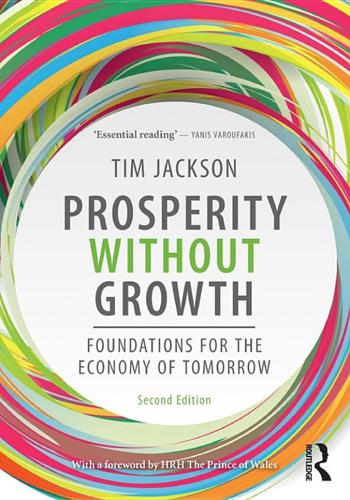
Prosperity Without Growth: Foundations for the Economy of Tomorrow
by
Tim Jackson
Published 8 Dec 2016
Practices like short-selling were suspended; increased capital adequacy requirements were called for; there was, briefly, a grudging acceptance of the need to cap executive remuneration (bonuses) in the financial sector.33 Admittedly, this last concession was born more of political necessity in the face of huge public outcry over the bonus culture than through recognition of a point of principle. Within only a few months of the crisis, huge executive bonuses were being paid again. As early as December 2008, Goldman Sachs paid out $2.6 billion in end-of-year bonuses in spite of its $6-billion-dollar bailout by the US government, justifying these on the basis that they helped to ‘attract and motivate’ the best people.34 Many such responses were seen as short-term interventions, designed to facilitate the restoration of business as usual.
…
See also Turner (2015). 31 Citigroup had to be rescued by the US government on 23 November 2008, with an injection of $20 billion and the underwriting of more than $300 billion in risky assets. 32 Soros (2008: 81 et seq.), Summers (2014: 68). 33 Taken from a speech by the UK Prime Minister to the United Nations in New York, Friday 26 September 2008. See www.ft.com/cms/s/0/42cc6040-8bea-11dd-8a4c-0000779fd18c.html. 34 See, for example, www.guardian.co.uk/business/2008/dec/17/goldmansachsexecutivesalaries (accessed 14 March 2016). Five years later, the bonus culture was still alive and well. Around 2,600 employees at British banks were paid a total of £3.4 billion in bonuses in 2013, an average £1.3 million pounds each and almost 50 times the average annual salary in Britain. From 2015, however, the European Union has introduced a cap on bonuses, which may now at most be 100 per cent or exceptionally (with shareholder approval) 200 per cent of annual salary.

The Extreme Centre: A Warning
by
Tariq Ali
Published 22 Jan 2015
Clinging to the fraying coattails of the ‘labour movement’ is a recipe for inaction. Politics, not sociology, is the need of the decade. The People’s Vow 1. We won’t let the poor suffer any longer for errors made by bankers and politicians. Our movement will endorse higher wages and deeper investment over greed and the backslapping bonus culture. Social justice campaigners everywhere, whether in Edinburgh, London, Cardiff, Dublin or Barcelona, can expect our full support because our challenges are international. Together with trade unions, community groups, charities and academic experts, we will prepare a people’s budget to save Scottish public services. 2.
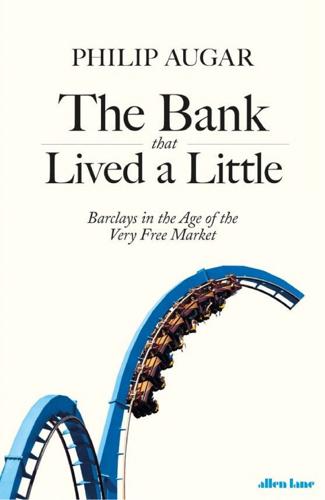
The Bank That Lived a Little: Barclays in the Age of the Very Free Market
by
Philip Augar
Published 4 Jul 2018
He had influenced the Americans and led the European banking rescue but his own and his party’s reputation for economic management was ruined. The opposition parties piled on the pressure. The Liberal Democrats’ Treasury spokesman, Vince Cable, who had been chief economist at Shell before entering politics, captured the public mood: ‘These people never learn. The bonus culture generated excessive and dangerous risk for the taxpayer and there is a real danger of this happening all over again.’2 The Treasury Select Committee became the court of public opinion. The Labour MP John McFall, a witty Scotsman, and former chemistry teacher with an eye for the mood of the man and woman in the street, had become its chairman in 2001.
…
Elaine Moore, ‘Barclays tops FSA customer complaints’, Financial Times, 28 September 2011 16. Patrick Jenkins and Megan Murphy, ‘Protium assets return to haunt Barclays’, Financial Times, 27 April 2011 17. Barclays Annual Report 2011, pp. 20, 175 18. Today Business Lecture 2011, news.bbc.co.uk 19. ‘Financial crisis: the Bank of England’s surprising bonus culture’, Prospect, 11 August 2009 20. A Boardroom Row, 2012 1. Barclays Annual Report 2011, p. 14 2. Statement on banking by the Chancellor of the Exchequer, 9 February 2011, gov.uk 3. Barclays plc Remuneration Report 2010, p. 14, barclays.com 4. Jill Treanor, ‘Barclays hands five bankers £110 million’, Guardian, 7 March 2011 5.
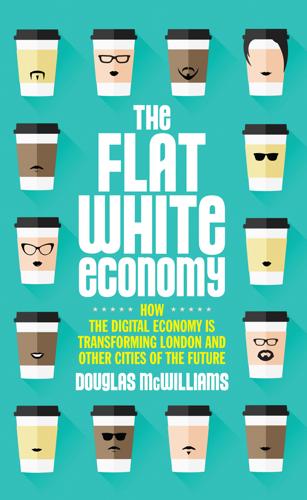
The Flat White Economy
by
Douglas McWilliams
Published 15 Feb 2015
The lifestyle trickled down from the traders to the people who serviced their requirements. Stories abounded of supporters of London football clubs waving their wage packets at visiting Liverpool supporters, chanting “Bet you’re on the dole!”. Shops, bars, restaurants and other service providers in London benefitted financially but suffered morally from the mega-bonus culture that infiltrated London in those days. People think of the heyday of the “loadsamoney” culture being the 1980s. But the financial merry-go-round in the city didn’t actually come to a shuddering halt until the great financial crisis of 2007/08. Bonuses continued to rise and London’s economy, driven by financial services, grew much faster than the rest of the UK.
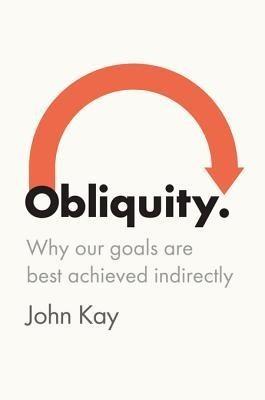
Obliquity: Why Our Goals Are Best Achieved Indirectly
by
John Kay
Published 30 Apr 2010
The complexity of the relationship between the whole and the parts is an important reason why obliquity—the process of adaptation and discovery—is, as it was for the foresters, the best means of promoting the health of the whole. Yellowstone blazed, and Lehman failed, because those who imposed direct solutions to problems did not appreciate the complex relationships among objectives, goals and actions. Extinguishing all fires made the forest more vulnerable, and the bonus culture destroyed the organization that fostered it. Obliquity recognizes the futility of reengineering, the impracticality of employing “serene and lucid minds” to conceive, as Le Corbusier visualized, a plan that “ignored all current regulations, all existing usages and channels.” Le Corbusier developed grandiose plans for the redevelopment of cities, most spectacularly the Plan Voisin, which would have razed most of central Paris to create a planned urban environment.7 This rebuilding never happened.
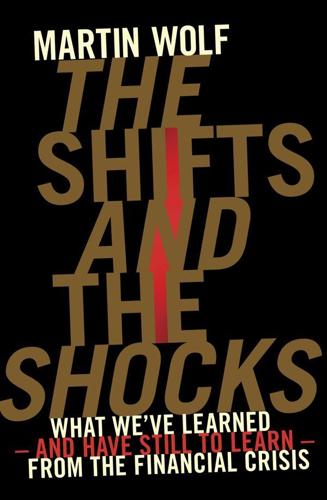
The Shifts and the Shocks: What We've Learned--And Have Still to Learn--From the Financial Crisis
by
Martin Wolf
Published 24 Nov 2015
Getting back to full employment through stimulus policies would not resolve the difficulties of the US, but it would reduce the immediate misery. One cannot let the best be the enemy of the good. Andrew Smithers of London-based Smithers & Co. suggests yet another structural constraint. In The Road to Recovery he argues that the bonus culture distorts the behaviour of corporate management, particularly in English-speaking countries, in a destructive direction.44 Above all, it focuses managerial attention on ways to raise reported earnings and share prices in the short run, since managers are unlikely to be in charge very long. Their goal is to cash out as successfully as possible and as quickly as possible.
…
It would also be possible to raise corporation tax while increasing investment incentives. Again, the effect would be to encourage distribution of any profits over and above those needed for investment. In addition to these changes, as Andrew Smithers has argued, there is a powerful case for attacking the bonus culture, which leads management to under-invest in capital goods and over-invest in share buybacks.17 The fourth area is changes in financial contracts. The idea would be to create debt contracts that automatically adjust to circumstances. Index-linked debt is an example: the nominal value depends on the rate of inflation.
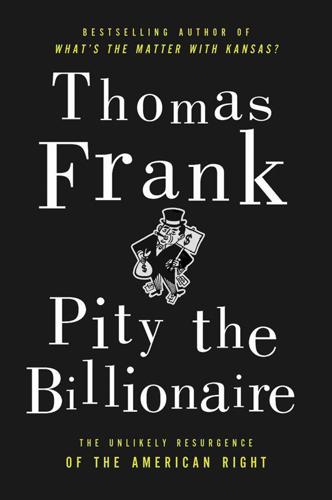
Pity the Billionaire: The Unexpected Resurgence of the American Right
by
Thomas Frank
Published 16 Aug 2011
And it was unmistakably bad: the bailouts were the avenues by which our government obligingly moved the financial industry’s losings over to the taxpayers. In different times, the TARP might have become the rallying point of a revitalized Left. After all, the bailouts were clearly of a piece with the misbehavior that had come before: the deregulation of the banks, the bonus culture, the wrecking of the supervisory state. Business-friendly conservatives had been behind each of these, and then business-friendly conservatives had knitted together the TARP for the same rotten reason: to give the bankers whatever they wanted. Reformers might have depicted the TARP as the final chapter in the great book of fraud, the episode in which Wall Street used the captured state to transfer its debts to the public.
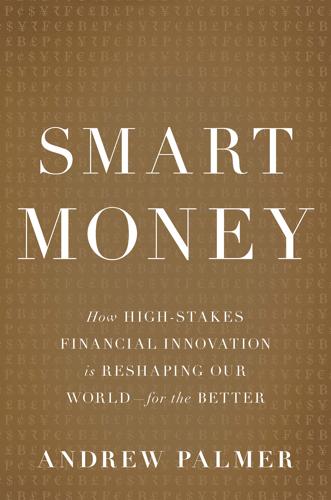
Smart Money: How High-Stakes Financial Innovation Is Reshaping Our WorldÑFor the Better
by
Andrew Palmer
Published 13 Apr 2015
Handelsbanken sailed through the financial crisis with a model founded on what it calls the “church-tower principle,” the idea that branch managers should do business only as far as they can see from the local spire. Decision making is extremely decentralized; the branches make all the credit decisions, and there are no detailed budget targets for them to meet. Customers do not spend years of their lives waiting in call-center lines; they call up and speak to a person whose name they know. There is no bonus culture, either. If Handelsbanken’s return-on-equity goals are met, then a portion of the profits is funneled into the bank’s pension scheme, which is its largest shareholder. It’s all wonderfully Swedish. But personalized service and relationship banking are also expensive. The Handelsbanken model works because it is selective about the types of customers it takes on.
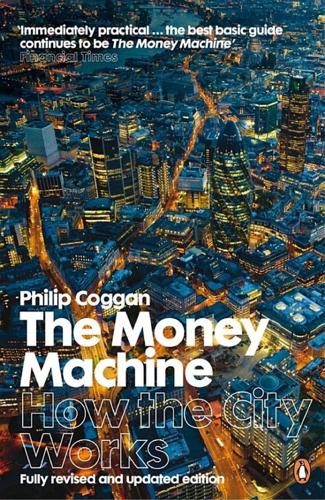
The Money Machine: How the City Works
by
Philip Coggan
Published 1 Jul 2009
When traders lose money, they may get fired but don’t have to pay past bonuses back. That creates skewed incentives. The demise of Bear Stearns and Lehman Brothers illustrated the problems. It was not that the bankers didn’t suffer; a lot of them had their wealth tied up in company shares, which were virtually wiped out. But the bonus culture may have encouraged them to dream up complicated instruments like derivatives that earned high fees in the short term but were very dangerous to the health of the banks in the medium term. Their key weakness proved, like Northern Rock (see Chapter 3), to be their dependence on the wholesale markets for capital.
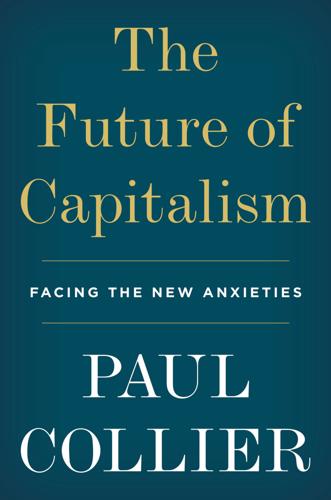
The Future of Capitalism: Facing the New Anxieties
by
Paul Collier
Published 4 Dec 2018
* Currently, the best practical measurement of well-being is by means of a ten-step scale depicting a ‘ladder of life’, from worst- to best-imagined circumstances. This turns out to be a more stable measure than direct questions about happiness, which are influenced by the mood of the moment. Results for the ladder of life are reported in the World Happiness Report, 2017. * An example is the introduction of the bonus culture into public service. * Here is one of its founders, William James: ‘A social organism of any sort whatever, large or small, is what it is because each member proceeds to his own duty with a trust that the other members will simultaneously do theirs. Whenever a desired result is achieved by this cooperation of many independent persons, its existence as a fact is a pure consequence of the precursive faith in one another of those immediately concerned.
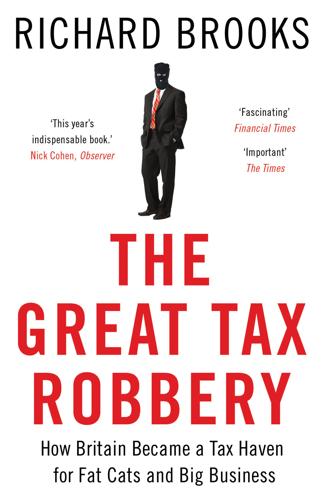
The Great Tax Robbery: How Britain Became a Tax Haven for Fat Cats and Big Business
by
Richard Brooks
Published 2 Jan 2014
But to suggest that all taxpayers should stop trying to reduce bills – I’m sorry, that’s not how things operate.’6 Indeed it wasn’t how things operated in a world where salaries for Big 4 accountancy firm tax partners were now hitting the high hundreds of thousands on the back of tax avoidance. No area of the tax code was safe from the accountants’ loophole-detectors. So it was no surprise when the same firms that were picking apart corporate tax laws spotted the booming bonus culture as another fat meal ticket. Rich pickings Just as with corporate taxation in the 1990s, employment tax laws had been put at the service of free market capitalism. Successive governments from the 1980s had introduced, and then repeatedly enhanced, an array of tax breaks to ‘incentivize’ the payment of wages in the form of shares.

Jared Bibler
by
Iceland's Secret The Untold Story of the World's Biggest Con-Harriman House (2021)
On the other hand, what are the incentives for a market participant to cut a corner, to cheat to make an extra million or two? Well, an extra million or two is the answer. Who has the stronger incentive to take action, the regulatory lawyer who collects his paycheck either way, or the small-time fraudster who pockets millions on a couple of inside trades? The financial sector grows huge, fueled by the bonus culture. But those supposed to oversee this sector are not similarly rewarded for doing great work. Their rewards are the same day in, day out. If we as a global society really want to clean up the dirty world of finance, we can 1) ensure our regulators are compensated as well as they would be in the private sector, ensuring the best pool of talent, 2) tie part of the pay of the regulators we hire to the size and severity of the successful civil and criminal cases they bring in.
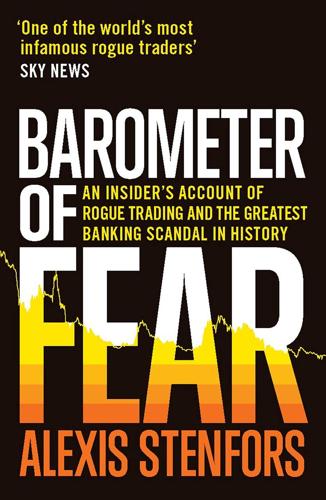
Barometer of Fear: An Insider's Account of Rogue Trading and the Greatest Banking Scandal in History
by
Alexis Stenfors
Published 14 May 2017
Banks need professionals who want to serve in these ‘war zones’ but who also have a natural survival instinct. Bonuses often form a significant part of a trader’s compensation, as a key incentive, even though they tend to be paid out ‘only’ once a year. Although it could be argued that an aggressive bonus culture can result in reckless risk taking, more significant in my opinion is that the risk taking itself can lead to sensations of achievement and thrill impossible to achieve otherwise. Daily, or even intra-daily, swings in profits and losses quickly become intertwined with the confidence, self-esteem, ego or arrogance of a trader.
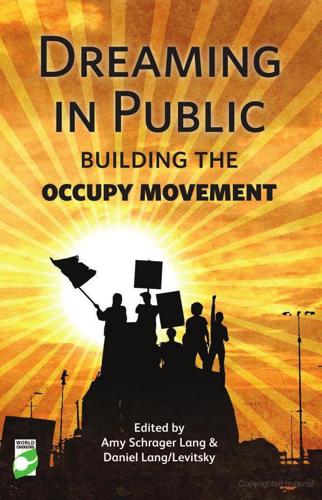
Dreaming in Public: Building the Occupy Movement
by
Amy Lang
and
Daniel Lang/levitsky
Published 11 Jun 2012
– Oxford English Dictionary Index #ows see Occupy Wall Street Abraham, Julie 13 access to Occupy sites 197, 216-20 Accounting Working Group 120 Achtenberg, Emily 13 ACT UP 19, 21 administrative structures see general assemblies; spokes councils and working groups advertising 31-2 affiliations, rejection of 99, 101-3, 299 see also co-optation Afghanistan 16, 225 age diversity see children; young people and older people agriculture 49, 225 AIM see American Indian Movement Alberta tar sands 45, 152, 165 Albuquerque, US 147, 195 alcohol policies 281 Algeria 9, 21 All of Us, or None 272 American Indian Movement (AIM) 150 American Library Association 61, 62 Amig@s de Mumia de Mexico 65 amplification bans see people’s microphone Anderson, Marian 90 Anonymous (masked occupiers) 175, 186, 277, 291, 293 Anonymous (poem) 14 anti-globalization protests 44, 58, 64, 229 anti-war campaigns 67, 228, 243, 296, 297 Anzaldúa, Gloria 169 Aoki, Richard 195 aphorisms 197, 199-200 Appel, Hannah Chadeyane 99, 112, 253, 260 Arab Spring 58, 68, 102, 204, 236 Argentina 20, 21 arrest counts 238, 257 arts and culture 175-96 music 90, 111 performance art 28 poetry 14, 28 posters 28, 148, 181-3, 194-6, 204, 311 projections 192-3 puppetry 27, 28-9, 192-3, 263, 265, 266 writing and language 39-42, 277, 305 Ashraf, Hena 158 Atlanta, US 145, 147 Auden, WH 41 Austin, US 240 Australia 296 Bady, Aaron 125, 133, 197, 206 Baiocchi, Gianpaolo 277, 298 Bakersfield, US 57 Baldwin, James 15 Baltimore 47, 54 Bank of America 148, 215, 251 banks 59, 64, 73, 302 bailouts 67, 271 and housing foreclosures 226, 250-2, 271 Belgium 296 Bellafante, Gina 110 Benjamin, Walter 234, 236 Bierce, Ambrose 197 Black Panthers 19, 195, 240 Blair Mountain rebellion 73 blocking 113-14, 129, 130, 141, 158 Bocafloja 65 Boggs, Grace Lee 57, 164 bonus culture 27, 49, 271 Boston, US 108-10, 125, 128, 148, 165, 271, 272-3, 275, 291 Brazil 20, 28, 277, 278, 282 Britain 70, 292-3, 295 London 277, 279, 291, 294 northern England 277, 280-2 Brookfield 254 Brown, Adrienne Maree 72, 79, 85 Bryson, Jack 95 Burma 224 Bush, George W 39, 297 Cairo, Egypt 9, 70, 295, 297 Camp David 225 camping as protest 23, 277, 295-7 Canada 141, 164, 166, 167, 229, 296 capitalism 8, 32, 38, 54, 128 Captain Swing 277, 293 Carvalho, Alexandre 28, 29 Cassie (at Occupy LA) 216 Centro Cultural La Piramide 65 Centro Social Okupado ‘Casa Naranja’ 65 Cervantes, Melanie 148, 195 change identifying problem 221-2 see also living practices; politics and urban communities Chávez, César 194 Cheryl (at Occupy LA) 216, 218, 220 Chicago, US 20, 230, 231 children 110, 155, 240, 258 facilities for 92, 126, 240, 258 China 9 Chittister, Joan 57 Chomsky, Noam 28 Chris (at Occupy Wall Street) 155 Cindy (at Occupy LA) 220 City Life Vida Urbana 250, 272 civil rights movement 17, 19, 47, 56, 147, 195, 204 class/race inequalities 105, 142, 157-60, 166-7, 171-4, 223 Clegg, Nick 282 Clifton, Lucille 166 Climate Camps 296 climate change 45 Colbert, Steven 163 Colectivo Cordyceps 65 Colectivo Noticias de la Rebelion 65 Colectivo Radio Zapatista 65 colonialism 16, 50, 151-2, 164-5, 285 Colorlines.com 148 Columbus, Christopher 109, 150 Comfort Working Group 22, 30 Community Relations Working Group 115 Comrades from Cairo 70-1 conflict resolution 125, 126-7 consensus 47, 83, 85, 97, 105, 112, 117, 147, 230-1, 232, 266, 301 conversations, political 36, 37, 72, 76-8, 81, 110 co-optation 72, 97-8, 169, 225, 229 core values of Occupy/Decolonize 8, 21, 24-5, 45-6, 83, 277, 289 corporations grievances against 49-50 political influence 15, 18, 43, 49-51, 76, 144, 271 and social oppression 148, 165-7, 224 tax avoidance 98 see also banks and under named corporations Council of Elders 47, 56-7 Crane, Helga 89 crises 43, 59, 83, 270 alternatives to 152-3 Czech Republic 9, 64 Dake, Elizabeth 128 Dallas 257-8 Darth Vader 31 Davidson, Charles 98 Davis, Angela 194 Davis, Troy 155, 156 deaf sign language 218 @debcha 222 debt, foreign 21, 284-6 debt, personal 47, 50, 52-3, 242, 247, 271 decision-making 83, 85, 301 see also general assemblies: process declarations and statements 17, 18, 47, 49-51, 54, 56-7, 61-2, 157-60, 309 Decolonize LA 99, 104-7 Decolonize Toronto 166 definitions of Occupy 310 Dellums, Ron 172 demands 8, 21, 273, 299 rejection of 17-19, 47, 68, 81, 167, 203, 234, 239-40 Demarco (at Occupy Oakland) 94-5 Democracia Real Ya (DRY) 299 democracy 68, 70-1 see also participatory democracy Denmark 296 Denver, US 57, 141, 150-3, 165 Derrida, Jacques 33 Detroit, US 57, 72, 82, 83, 85-7, 118, 147, 201 direct action 225-52 Direct Action Working Group 75, 115, 169 disabled people 197, 216-20, 284 disadvantage, criminalization of 284-5 disguises 291-2 disruptive behavior 22-3, 96, 98, 119, 121-3, 127, 301 diversity of Occupy/ Decolonize participants 80, 93, 109-10, 136, 147, 155, 267 age see children; young people and older people gender see LGBTQ and women race see indigenous peoples; people of color and white people Dix, Carl 115 Dixon, Bruce A 141, 143 donations 30, 60, 92, 110, 114, 156, 241, 256, 257 Dongas 102 doublethink 282 drumming 115, 156, 261, 266 DRY see Democracia Real Ya Dueñas, Jose 171 Dwayne (puppeteer, at Occupy Wall Street) 265, 266 Earth First!
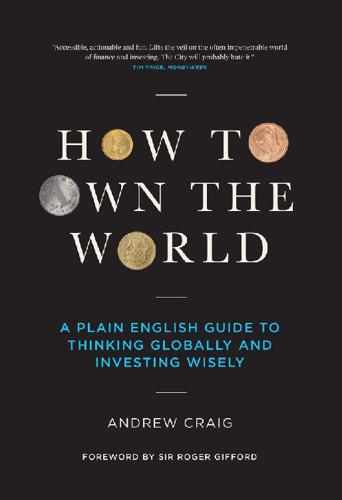
How to Own the World: A Plain English Guide to Thinking Globally and Investing Wisely
by
Andrew Craig
Published 6 Sep 2015
Social changes such as large-scale immigration from new EU countries such as Poland, higher divorce rates, and more young people wanting to move out of their parents’ homes to live alone have created a higher demand for many types of property. “Prime” central London property has also been particularly strong given the explosion in the British financial service industry and its bonus culture and, in addition, the vast numbers of global rich who see London as an excellent long-term investment due to its strong legal system, favourable tax treatment of foreign nationals, and perfect geographical placement for international business. Interest rates Perhaps even more important than these factors, however, has been the price and supply of money.
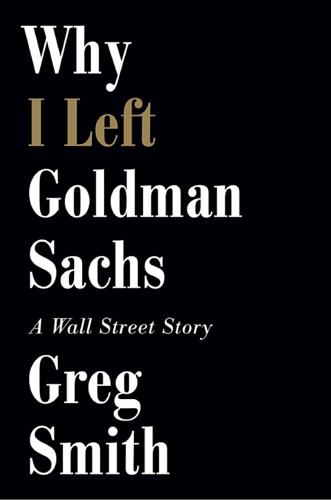
Why I Left Goldman Sachs: A Wall Street Story
by
Greg Smith
Published 21 Oct 2012
Now that the chickens had come home to roost, we were showing hedge funds how to profit from Greece’s chaos; and on the other side of the Chinese wall, our investment bankers were trying to win contracts from the European governments to advise them on how to fix the mess. This complex and conflicted scenario was deflating for many people on the trading floor, and I had many conversations about it with colleagues. People saw the hypocrisy but nobody did anything about it. The bonus culture was just too entrenched. The numbers themselves militated against change. There was a time in Goldman Sachs’s history when bonuses were very subjective. At the end of each year, your manager made an assessment based not just on how much business you’d brought in, but also on how good you were for the organization.
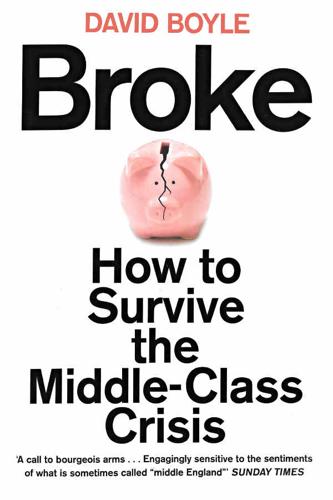
Broke: How to Survive the Middle Class Crisis
by
David Boyle
Published 15 Jan 2014
Speculation is now so much more profitable than the ordinary business of business that it is increasingly hard to raise money to do anything else. Companies have long since begun to outsource all functions except the finance one. They have begun to hollow themselves out, just as the economy begins to hollow itself out — all sound and fury, signifying increasingly little. There is also financial corrosion. The bonus culture has pushed up the price of homes, and is still doing so: bonuses may be lower but City salaries are higher. It has fuelled inflation and shifted the attention of the economy increasingly onto satisfying the luxury needs of the Übermenschen. At the same time, the emphasis on financial markets has been lowering salaries elsewhere.
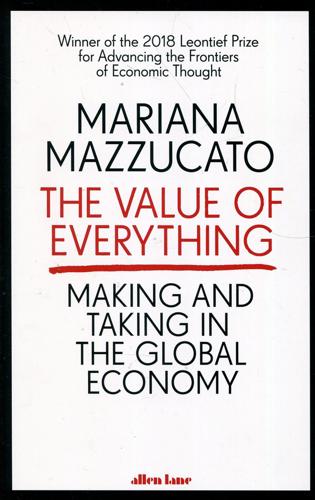
Value of Everything: An Antidote to Chaos The
by
Mariana Mazzucato
Published 25 Apr 2018
Once banks' profitability has been swelled by the market power that allows them to extract rents from other sectors, their top employees can in turn exert internal labour-market power to channel a share of those rents to themselves, helping to give the financial sector its unique and entrenched bonus culture. On top of monopoly rent, financial markets give investment banks and other professional ‘players' another significant route to high financial returns, divorced from the high risk that is traditionally understood to justify those returns. Financial markets instantly adjust the price of company shares and bonds to the future profits those companies are expected to make.
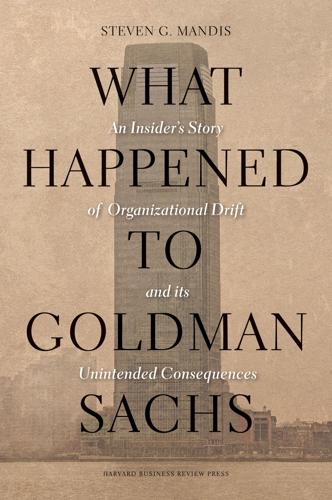
What Happened to Goldman Sachs: An Insider's Story of Organizational Drift and Its Unintended Consequences
by
Steven G. Mandis
Published 9 Sep 2013
He then said he ran what the senior partner called a relatively important business, and yet he hadn’t remembered meeting before. By the time the senior partner got off the elevator, he had made up his mind it was time to get out and retire. Working with other people’s money also coincided with changing attitudes toward risk management. With the change to a bonus culture, there was more incentive to take risks, and because the partners were no longer personally liable for covering losses, the constraints on risk-taking (not just financial but also reputational) were loosened. Those in areas such as proprietary trading had the opportunity to make more money than banking partners if they made the firm significant amounts of money.
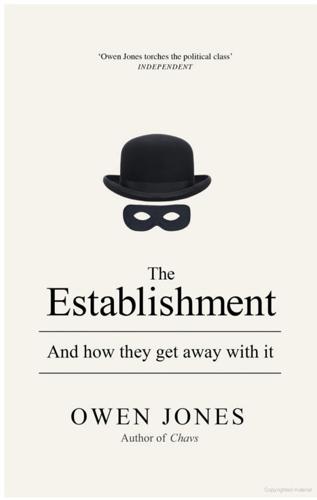
The Establishment: And How They Get Away With It
by
Owen Jones
Published 3 Sep 2014
‘There were very few women on floors, and when they walked past desks, there was lots of leering.’ The ideology promoted by the outriders – that individual self-enrichment was the key to economic growth – was championed by the financial sector like no other. ‘Greed is the primary driver,’ says Darren. ‘There’s an awful lot of focus on the bonus culture. You’re working with money every day: you’ve got a daily measure of your success, which is how much did you make today, then this week, then this year, constantly thinking, talking about money. They think they made that pie, and they have the right to a big chunk of it.’ As a closeted gay man and a ‘reluctant investment banker’ from a working-class background in Romford, Essex, Jim had a similar experience, finding himself in a sector awash with primitive forms of prejudice.
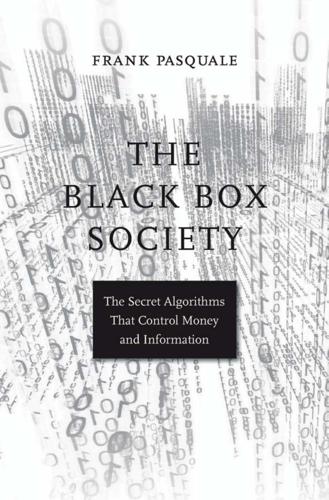
The Black Box Society: The Secret Algorithms That Control Money and Information
by
Frank Pasquale
Published 17 Nov 2014
I borrowed this model from health care, where a swarm of contractors scrutinizes billing records to detect fraud and 212 THE BLACK BOX SOCIETY abuse. But another health care model, designed to prevent overbilling and overtreatment, is simply to pay physicians salaries, rather than “per-procedure.” Imagine if this approach were to supersede the bonus culture of Wall Street (where, for most key players, annual pay is peanuts compared to the bounty available in a banner year of spectacularly successful risks). Sure, in health care, there are worries that salary-based pay will lead to shirking. But given how destructive financial innovation has been over the past decade, maybe bankers ought to work less, at least until they can better prove how their sector contributes to real productivity.82 Restoring Trust For too long, we have assumed that the core aim of fi nancial regulation is disclosure.83 When every consumer understands the consequences of his actions, we like to believe, and when every investor has the same key data about a security as its seller, the fi nancial playing field will fi nally be leveled.
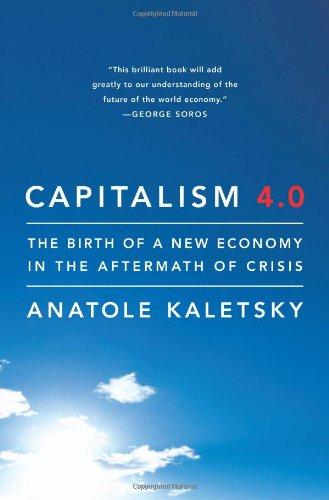
Capitalism 4.0: The Birth of a New Economy in the Aftermath of Crisis
by
Anatole Kaletsky
Published 22 Jun 2010
Politicians forced to support private banks with public money could no longer deny that government safety nets are a natural and necessary feature of social reality, whether in financial markets, or fire fighting, or the provision of defibrillators in public places.5 Banks driven to the brink of failure could no longer pretend that their reckless disregard for risk and “eat what you kill” bonus culture was purely a private matter between their shareholders, directors, and employees. Investors ruined by relying on theories of efficient and rational financial markets could no longer pretend that market-based financial regulations and accounting rules were always more reliable than political and regulatory judgments.6 The upshot was that the market fundamentalist opposition between government and private enterprise could no longer be seriously maintained.
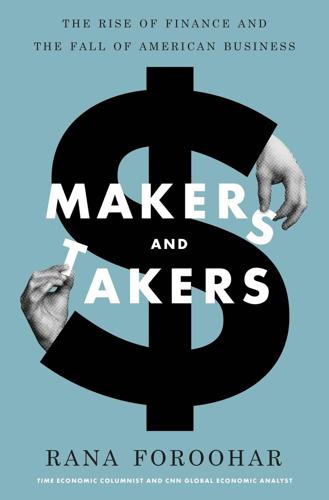
Makers and Takers: The Rise of Finance and the Fall of American Business
by
Rana Foroohar
Published 16 May 2016
Nonetheless, they do enrich executives, who took from 66 percent to 82 percent of their compensation in stock between 2006 and 2012.26 “It is surely difficult to praise buybacks as being good for shareholders when they are made at such disadvantageous times,” says Andrew Smithers, a British economist and financial consultant. (His book The Road to Recovery makes a convincing case that buybacks and the bonus culture are responsible for slow growth not just in the United States but in many rich countries, because they encourage executives to pay themselves, rather than investing in things that will actually make their companies more profitable.) “Buying overpriced shares is a way of destroying value and spending more money when the market is most overpriced is particularly egregious.”27 What this means on a practical level is that the common claim of corporate leaders—that tight credit conditions, a lack of consumer demand, and an uncertain regulatory environment have kept them from investing their cash hoard back into the real economy—is at best a half-truth.
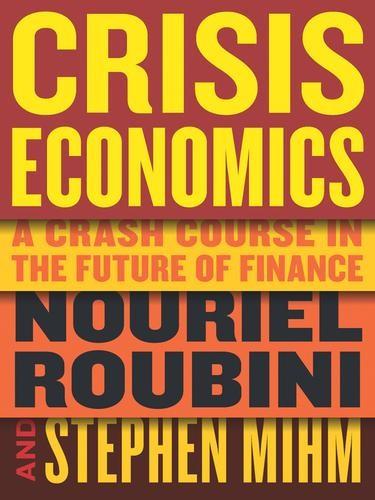
Crisis Economics: A Crash Course in the Future of Finance
by
Nouriel Roubini
and
Stephen Mihm
Published 10 May 2010
For starters, when employees of financial firms are compensated with restricted stock, provisions should be in place that force them to hold these shares for an even longer period of time than is now customary. Currently, many vesting periods are limited to a few years; they should be extended. Employees should be restricted from selling the stock until their retirement, or at the very least, for well over a decade. That’s a good first step, but a small one. The bigger issue is the bonus culture of Wall Street, in which employees are compensated when their bets pay off, but are not penalized when those bets cost the firm money. This system encourages risk taking that generates oversize “alpha” returns in the short term, with little consideration of long-term consequences. One way to fix this mess would be to create bonus pools that aren’t calculated on short-term returns but are based on a longer time horizon—say, three years or so.

Evil Geniuses: The Unmaking of America: A Recent History
by
Kurt Andersen
Published 14 Sep 2020
Until around then, investment banks were legally partnerships, consisting of people mainly investing their own personal wealth in deals, and thus they were strongly inclined to be prudent—eager to make more money, of course, but as eager as anyone not to lose what they had. But then, Cohan explains, “one Wall Street partnership after another became a public corporation. The partnership culture gave way to a bonus culture, in which employees felt free to take huge risks with other people’s money in order to generate revenue and big bonuses. Risk management on Wall Street [became] a farce, with risk managers being steamrolled by bankers, traders, and executives focused nearly exclusively on maximizing annual profits—and the size of their annual bonuses.
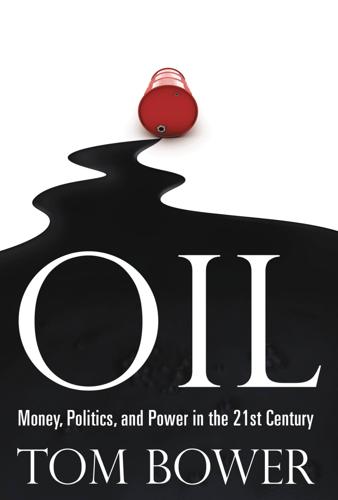
Oil: Money, Politics, and Power in the 21st Century
by
Tom Bower
Published 1 Jan 2009
“I wouldn’t be long [or short] in the spot this month,” Dyer would say, and thousands of contracts would be influenced. “Dyer’s fast,” Moorhouse told his colleagues. “He sees opportunities others don’t.” Renowned for his energetic trawling of the Internet for information, and for always demanding answers, Dyer had a reputation for pushing to the edge but not beyond. Motivated by the bonus culture, his rivals were not enthralled. “He’s loaded the bullets in the gun in Cushing and he’s socking the rest of the world,” complained a London trader. “He’s coining it going up and coining it coming down.” Charlie Tuke was a wary fan: “If he emptied his tanks, his players on the other side didn’t like him.”
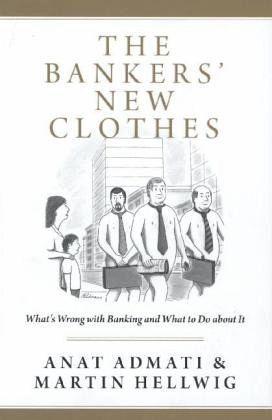
The Bankers' New Clothes: What's Wrong With Banking and What to Do About It
by
Anat Admati
and
Martin Hellwig
Published 15 Feb 2013
See also Robert Jenkins, “A Bank Run for the Benefit of Its Owners? Dream On,” Financial Times, January 8, 2012, and Jenkins (2012c). 34. Only two major banks have publicly disclosed clawbacks (see “ ‘Likely’ JPMorgan Clawbacks Rare on Wall Street,” CNNMoney, CNN, June 13, 2012). On governance and bonus cultures, see also “Hit Bankers Where It Really Hurts, in Their Bank Accounts,” Bloomberg, July 13, 2012, which also mentions a potential role for the Sarbanes-Oxley Act. 35. On possible regulation of compensation structures, see Bebchuk and Spamann (2010), Bebchuk et al. (2010), Wolf (2010), and Bhagat and Bolton (2011).
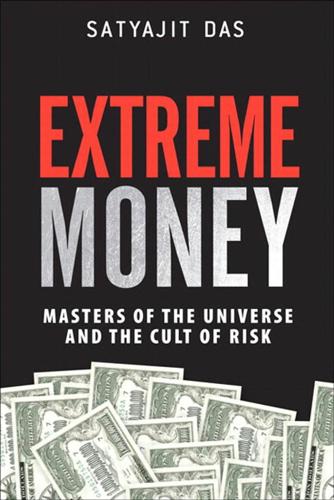
Extreme Money: Masters of the Universe and the Cult of Risk
by
Satyajit Das
Published 14 Oct 2011
Dissatisfied with his number, a young banker protested that it “was not a bonus! It’s a tip!” A tip or gratuity is a noncontractual payment for special service, sometimes related to the relative status of the parties. No doctor or surgeon expects to or receives a tip for doing their job properly. The bonus culture encouraged moral hazard—a focus on narrowly quantifiable outcomes while ignoring wider risks and costs. Elite bankers and traders took risks with other people’s money, aware that if they won the bet they would get a significant share of profits, while suffering no permanent damage if they lost.
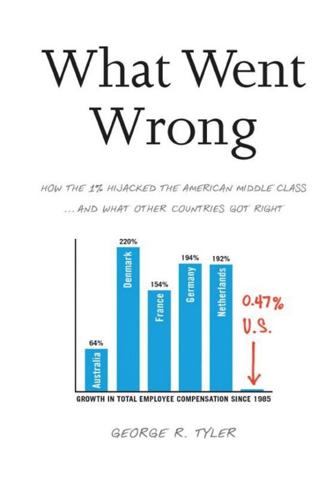
What Went Wrong: How the 1% Hijacked the American Middle Class . . . And What Other Countries Got Right
by
George R. Tyler
Published 15 Jul 2013
During the Reagan era, similar pseudoscientific rationale was provided by the themes of shareholder capitalism, and especially by Ayn Rand. The outcome is that business leaders are constantly driving one another to garner more income. As Diane Coyle, visiting professor at the University of Manchester, wrote: “[The] banking bonus culture validated making a lot of money as a life and career goal…. Remuneration consultants … helped ratchet up the pay and bonus levels throughout the economy.”13 “Too much” became “never enough.” In hindsight, it’s clear that CEOs pursuing their own magnified self-interest within this new environment enabled business leaders to engage in de facto class warfare as they strove to seize a larger share of the gains from growth.